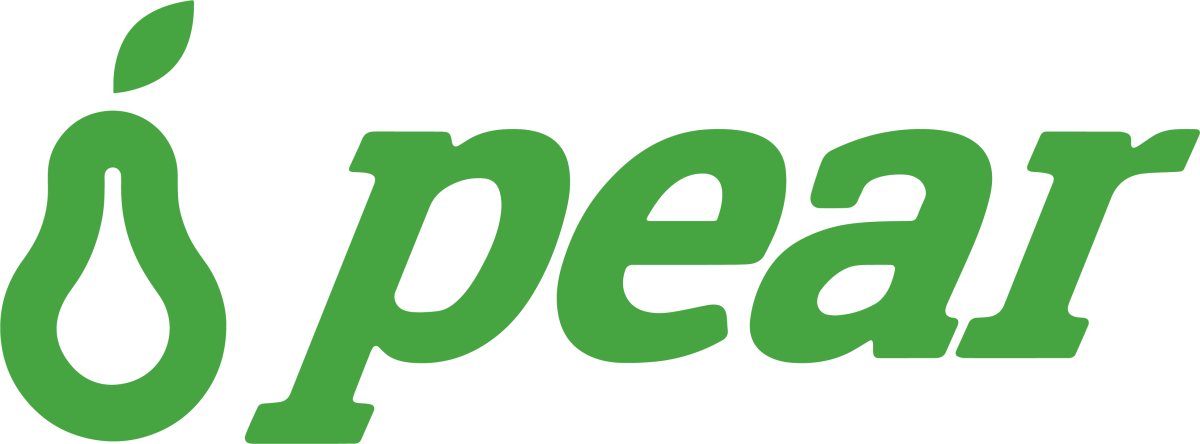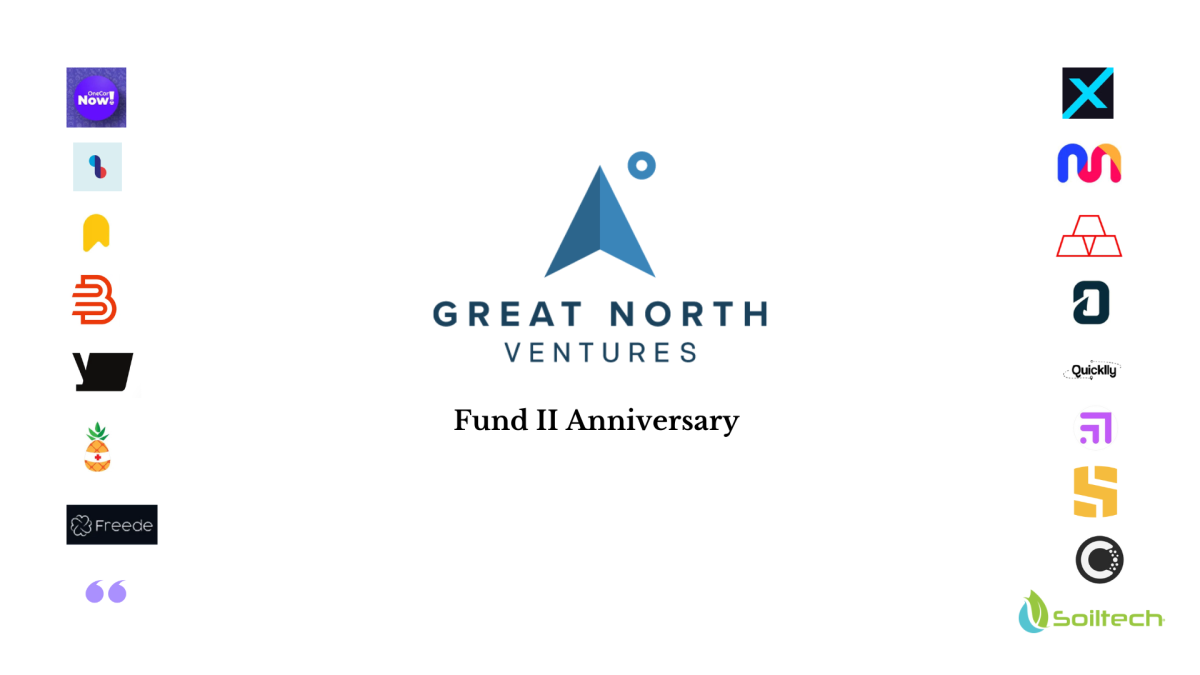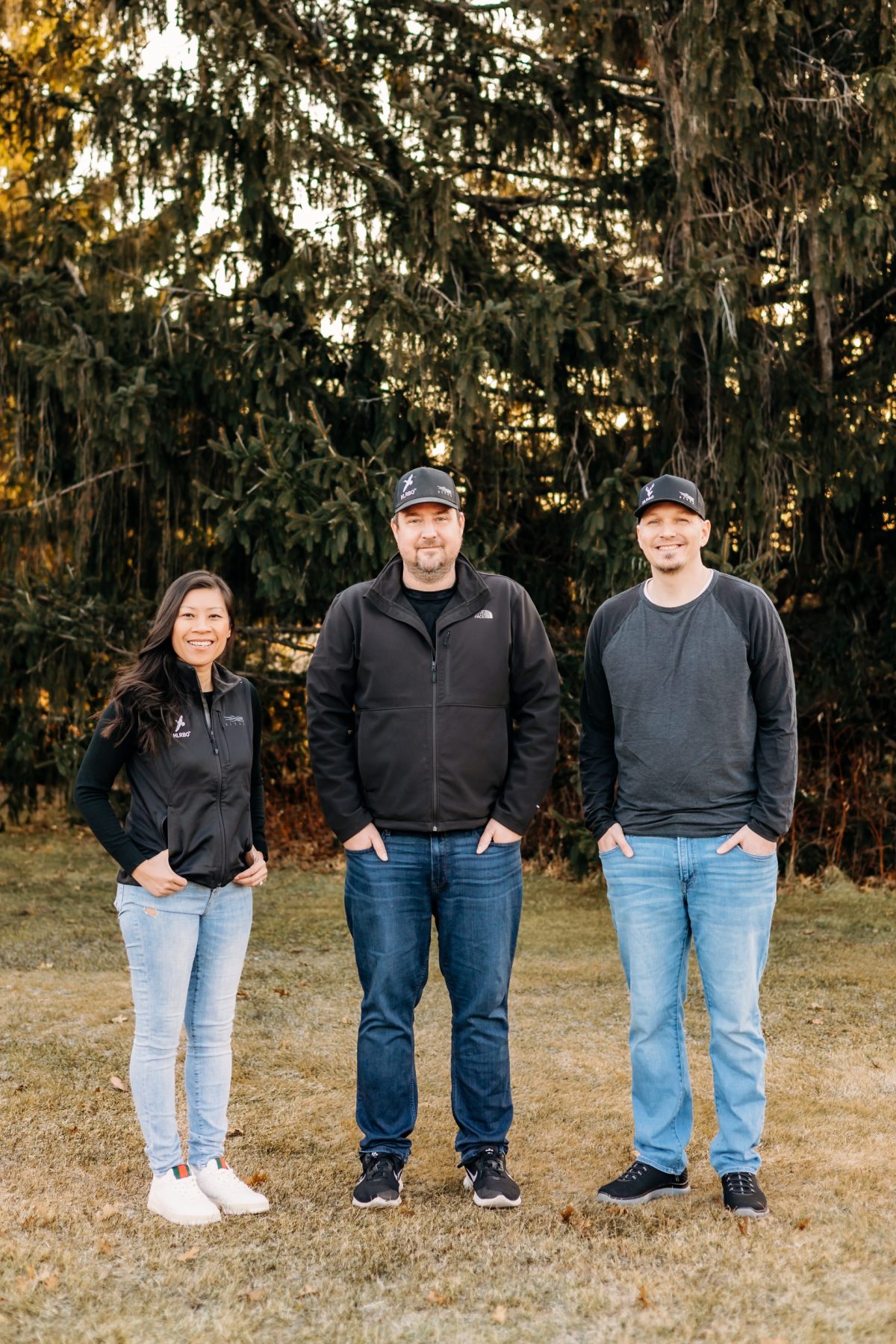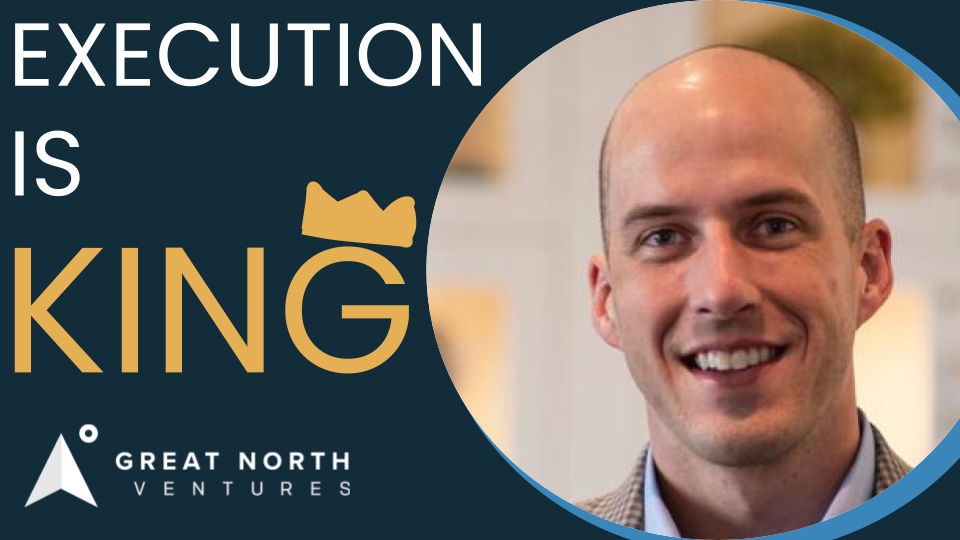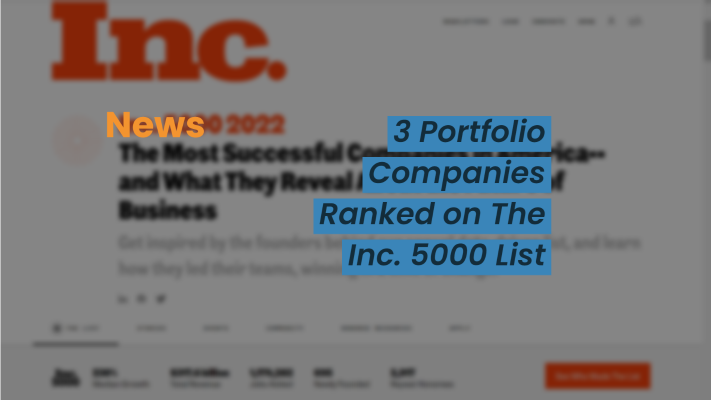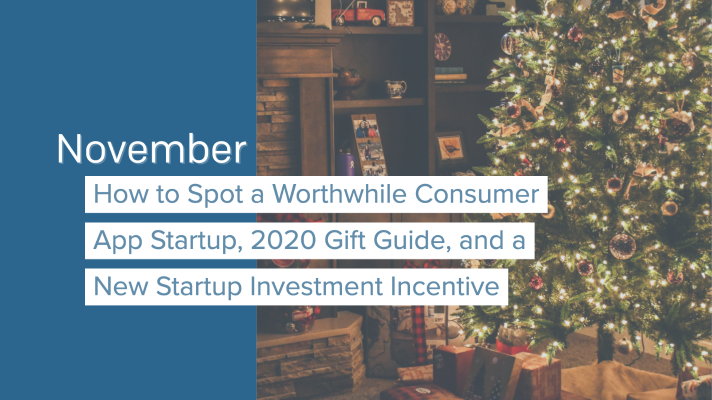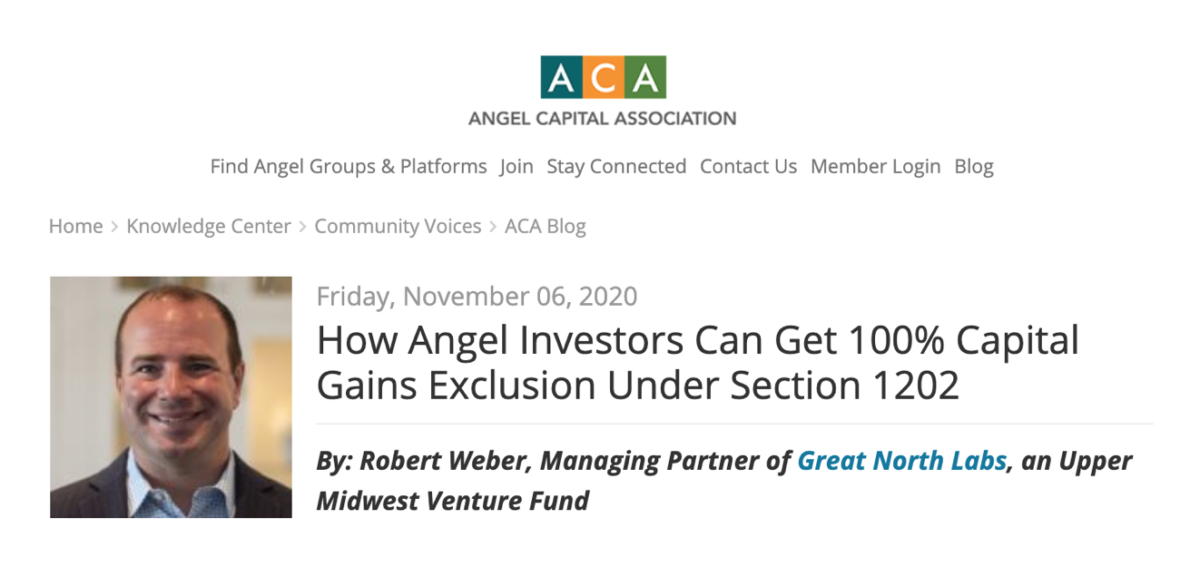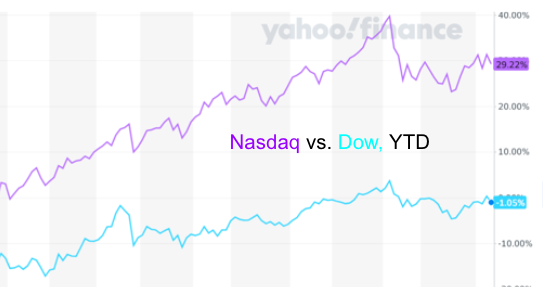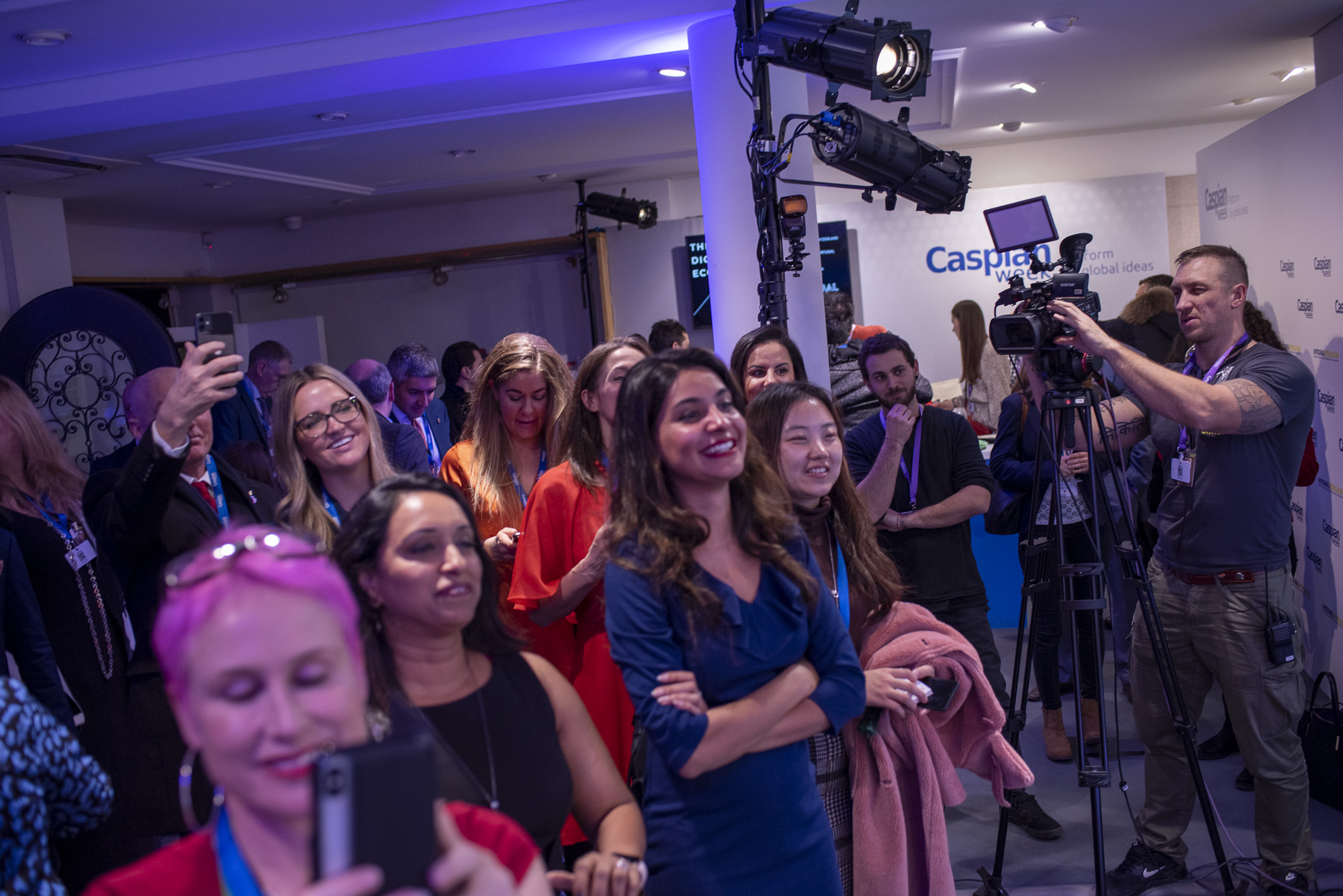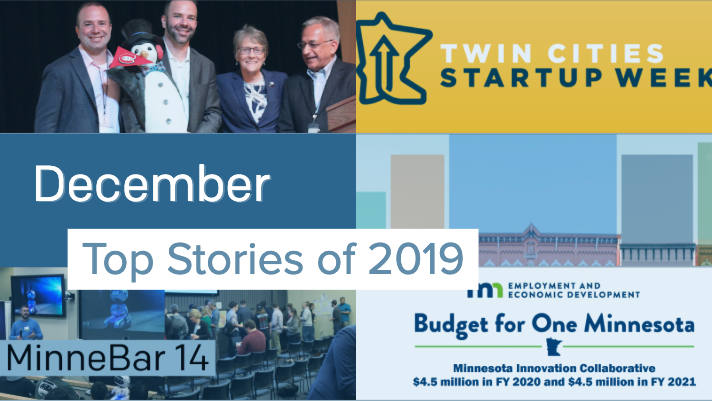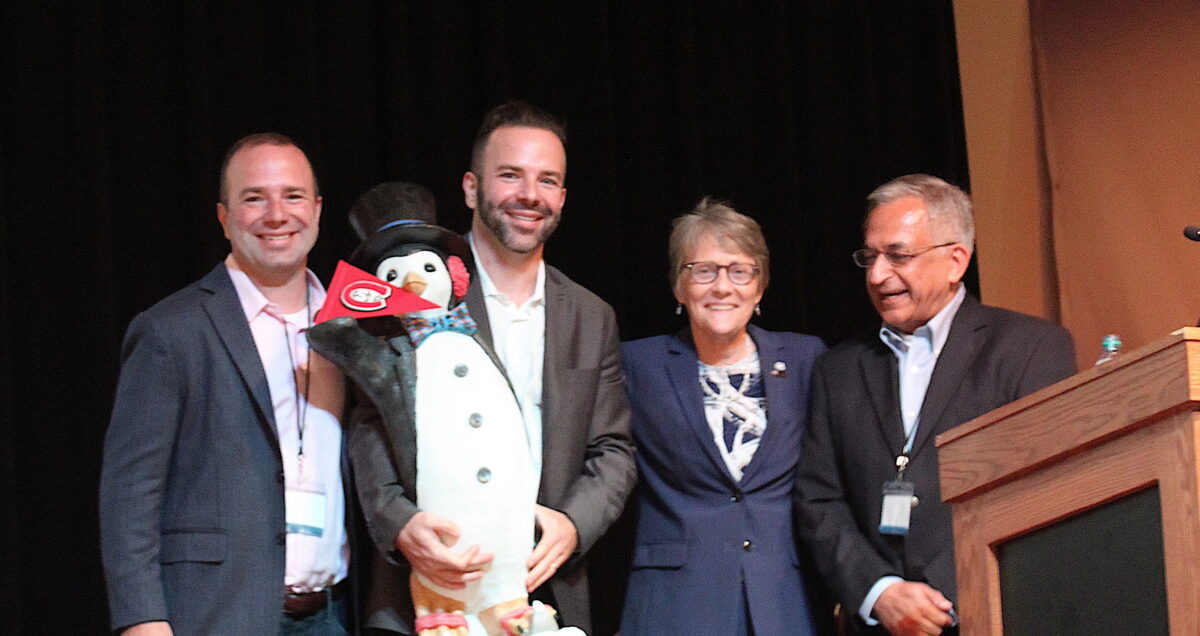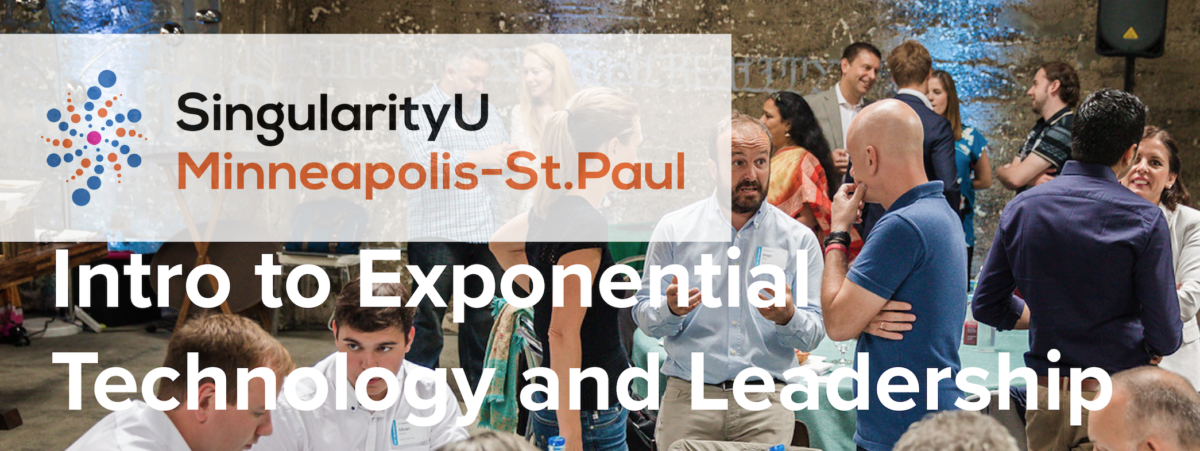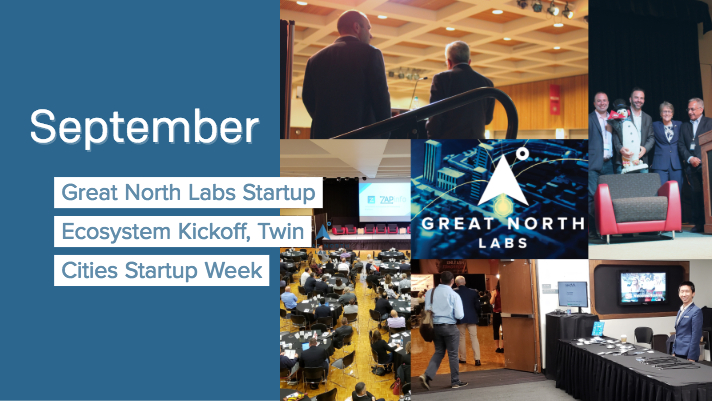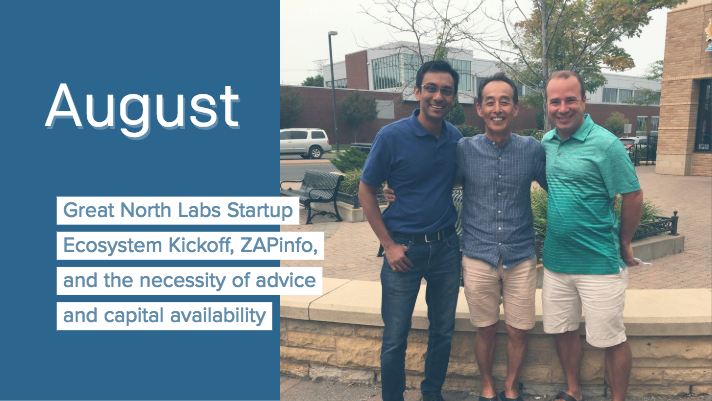Stay up to date with Great North Ventures here! With execution as our North Star we fund, build and scale innovative tech companies.
Quick Ask
Deal Flow – We are actively investing out of our $41 million second fund and welcome any opportunities that you think fits our investment thesis
What’s New
- Great North Ventures has added two new Associates, Joseph Daher and Grant Gibson
- We hosted several portfolio companies at Target Field to watch the Minnesota Twins

Left to Right: Ryan Weber, Rob Weber, Joseph Daher, Grant Gibson
Fund and Portfolio News

Revolutionizing Medical AI Development: Flywheel Announces $54 Million in Series D Funding led by Novalis LifeSciences & NVentures (NVIDIA’s venture capital arm) – June 2023
Read More

Branch Powers the Uber Pro Debit Card and Brings Instant Disbursements and Rewards to Gig Workers – October 2022
Read More

Acquired by Human Powered Health – January 2023
Read More
GNV In The Community
- May31 : Hosted Twins Game | Minneapolis, MN
- June14 : Pitch Breakfast | Charlotte, NC
- June 20-21 : Gener8tor Onramp Workforce/Education Conference | St. Paul MN
- June 21-22 : Gener8tor Onramp Insurance Conference | St. Paul MN
Content on Execution
- Catch Ryan and Rob’s interview with Twin Cities Business
- CEO of WithMe, Jonathan Treble, Talks Revolutionizing Multifamily Amenities, Rebranding and Recruiting Rockstars
Great North Ventures is an established early-stage VC fund with $70M in AUM. GNV is investing out of its recently closed Fund 2 into high growth startups across the spectrum of early stage (pre-seed to series A.) This head of finance and accounting role presents the candidate with an opportunity to gain deep experience in every aspect of venture investing (fundraising, portfolio management, investor relations, deal sourcing, due diligence, transaction management, and portfolio support.) GNV invests across many different industries and a candidate will have the opportunity to utilize their past industry experience as well as develop new areas of expertise. GNV also operates an incubation studio that will present the candidate with opportunities to work closely with management teams to build new startups from the ground up.
Position Summary
The Head of Finance & Fund Administration will support the organization and its national portfolio of investments with respect to financial analysis and modeling, valuation, business case development, and coordinating deal structuring and documentation with outside counsel. The successful candidate will demonstrate the ability to assess market opportunities, develop business cases for equity investment, lead business planning exercises, and provide ongoing performance monitoring and forecasting insight in a fun, fast-paced and entrepreneurial environment.
You will perform financial and operational due diligence, prepare professional presentations in PowerPoint, support deal structuring and negotiation, and provide post-close investment performance monitoring and documentation to inform executive decision-making. This is a data-driven organization, and this position requires an individual who is comfortable analyzing financial statements as well as operational metrics and can communicate findings and recommendations crisply.
This position will work closely with GNV’s managing partners; however, a great deal of independence and autonomy will be required.
Responsibilities
- Experience conducting market research, competitive analysis and evaluating new business opportunities
- Extensive, hands-on experience drafting management presentations, business plans and investor reporting materials
- Experience with managing key vendor relationships and ensuring deadlines are met by GNV and its vendor partners (fund administration, accounting/tax, legal, regulatory.)
- Experience coordinating complex investment transactions with many stakeholders and vendors involved.
- Experience with private equity accounting concepts and
- Coordinate with third-party fund administrator on quarterly investor reporting and on annual audit and tax reporting.
- Ability to effectively ingest detailed investment performance information, interpret quarterly financial data and synthesize results for senior decision makers
- Ability to meet stringent deadlines and perform with a high degree of autonomy and integrity while coaching and developing others
- Preferably someone with deep analytical and financial modeling experience with working knowledge of valuation techniques, financial/operational due diligence, business case preparation and private equity or venture capital investing structures; experience with detailed capitalization table modeling is a plus
- Mastery-level knowledge of Microsoft Excel, PowerPoint and Word
- Hands-on style and self-starter with a passion for entrepreneurship and the start-up ecosystem
- Above all – a deep intellectual curiosity and appetite for learning
Qualifications
● GNV encourages all candidates to apply regardless of educational background.
● 4-7 years of professional experience in accounting, auditing, and or startup finance are preferred, but not required.
● CPA and/or JD will be helpful in this role, but are not required.
Location
● From home (we are a remote team)
Compensation
● Competitive salary plus participation in fund’s carried interest
● Benefits – Medical, dental, vision insurance
● 401(k) contribution
● Statutory holidays + 4-weeks time off each year
Application Procedures
For interested candidates, please send the following items to Rob Weber at rob@greatnorthventures.com
●Updated resume
●Optional-A hypothetical investment memo for one of Great North Venture’s portfolio companies – This is intended to provide some insight into how you think about startup investing. This is open ended and you can include anything you find relevant or information that would be important for you to complete a more thorough analysis
The following is the first guest post in a series authored by Victoria Schanen, founder of Ghrow.io, a consulting services firm specializing in fractional human resources and recruiting leadership for startups. We’ve enjoyed our conversations with her and are pleased to share this series of guest posts with you. Prior to launching Ghrow, Victoria served as an HR executive in three separate SaaS startup companies based in Minnesota. She speaks and presents at startup events such as MinneBar, Twin Cities Startup Week, and Enterprise Rising and performs comedy improv in her free time.
Startups are lean operations with tight budgets and, for good reason, staff up in two areas first: technology and sales. A dedicated human resources team member doesn’t make it into the picture until much later and so the function is often cobbled together and minimally (or barely) viable. In this three-part blog series, I’ll endeavor to demystify startup HR by unpacking common pitfalls and offering helpful redirects.
Mission, Vision, and Values
Creating a foundation for startup employees to be successful begins with aligning people to the company’s mission, vision, and values. Employees look for purpose in their work, which stems from the purpose of the organization. A well articulated mission, vision, and core values provide not only a shared purpose for employees to rally around but serve as a guidepost in company operations – helping inform anything from processes and practices to traditions and shared experiences.
The first step is setting aside time to create the mission, vision, and values – either independently or with the help of an outside consultant. Oftentimes, and understandably, this alone is incredibly daunting. For the startups who pull through and produce the mission, vision, and values, a common outcome is that they’re published on the website, spoken about once or twice, but largely forgotten. This is especially true for the core values.
A founder’s challenge, should they choose to accept, is to actually breathe life into the values. Thankfully, the work can and should be shared as it definitely “takes a village” to get momentum. To get started, here are some ideas:
- Use core values in discussions around important decisions
- When announcing company wins, tie them to any applicable core values
- Include core values in the decks for recurring meetings (ex. cover slide or end slide)
- Highlight core values in job postings and use core values interview questions
- Use core values as a portion of your performance reviews and use them to guide promotion decisions
- When recognizing employees, tie in any applicable core values; use core values hashtags or custom emojis in Slack (employees love creating and using emojis!)
- Give out core values awards at the end of the year to employees who exemplify them
- Share and discuss articles from business publications (ex. Harvard Business Review) that tie to or show thought leadership around values
Tying operational practices back to the core values helps employees feel invested in the company and, by extension, their jobs. When employees are invested, they’re not only more productive but more loyal. The market for talent is tight and when (not if) your employee is approached for another opportunity, it’s in your best interest that they are fully engaged.
The True Test
The above recipe is one I whole-heartedly stand by, but with one caveat. Your core values can quickly, unexpectedly, be redefined as and reduced to the worst behavior your company tolerates. Oftentimes there is an incredibly smart, valuable team member who simply refuses to “drink the Kool-Aid” as it is perceived. Talk to this employee, point out the issue or case in point, and see if changed behavior is feasible. If not, either the values or the employee will have to go – you can’t have both and retain the integrity of the core values.
Company Narrative
An outgrowth of mission, vision, and values is the company narrative – the collective sense of what is going on, who we are, and employee morale. The narrative is of course created by the founder and leadership team, but it becomes the story employees tell themselves and each other. Keeping a positive narrative on track is important and often tricky.
Having regular shared experiences helps keep the narrative consistent. Most startups have plenty of team meetings, lending itself to co-workers sharing the same narrative. That said, co-workers from another team might have a very different narrative. If left alone, this creates a disjointed narrative and can cause strife. Establishing shared, company-wide experiences helps.
Narrative sustaining ideas:
- All Hands meetings on a regular cadence (weekly, monthly, etc.) with recurring segments
- Weekly recap emails from leadership (same or rotating leader sending)
- Lunch and Learn sessions, led by anyone with specialty knowledge
- Recreational events and volunteering
- Kickoff or year-end meeting, in-person
- Annual traditions (summer BBQ, holiday party)
The Path Ahead
Mission, Vision, and Values are a part of the foundation but obviously there is so much more that goes into a successful employee journey. Stay tuned for the next edition of Demystifying Startup HR when we’ll unpack topics around leadership and management.
To see the next post in our series, go here.
Welcome back to the Great North Ventures newsletter! We have 3 portfolio companies ranked on Inc. 5000, Quicklly expanding with Instacart, as well as our monthly roundup of portfolio company updates.
Congratulations to three of our portfolio companies, Branch, Dispatch, and WithMe (formerly known as PrintWithMe) for making the Inc. 5000 List! Being recognized is an honor and we are proud of each of these teams.
The Inc. 5000 List is Inc. Magazine’s data-driven list of the nation’s fastest-growing private companies. Companies are ranked according to revenue growth from 2018 to 2021. To qualify, a company must have been generating revenue by March 31, 2018.

Like Mike, I Want To Be Like Mike
Mike Schulte, Principal at Great North Ventures, joined Robert Weber & Josef Siebert on the Execution Is King podcast to share common concerns of founders relating to startup formation (picking a name, LLC or C-Corp, 1202 Qualified Small Business Sock) and fundraising (liquidation preferences, SAFE notes, board structure). The interview was so great it became our first two episode podcast!
Check it out: Part 1 – Startup Formation & Part 2 – Fundraising.
Portfolio News
Quicklly and Instacart expand partnership
EmpowerU launches self-care and mental health support for K-12 teachers and administrators
Omnia Fishing & Wired2Fish announce partnership
In the second of a two-part episode, we cover the most common concerns startup founders run into on fundraising, from our guest Mike Schulte, Principal and in-house legal expert at Great North Ventures who holds a JD/MBA from St. Thomas University.
Schulte at St. Thomas, covered the Healthcare IT sector as an MBA student manager for the Aristotle Fund. Next, he spent 20 mos as a Venture Associate at Soffer Charbonnet Law Group where he worked with clients of all sizes providing advise on legal matters ranging from offering memorandums for private placements to mergers & acquisitions. Mike has led legal and actively contributed to investing since joining Great North Ventures in January of 2018.
In this episode, we talk about fundraising, liquidation preferences, SAFE notes, and board structure.
Who does Schulte see executing? Brian Schoenborn at Moss & Barnett & David Winkler at Koley Jessen.
Transcript:
00:11
Welcome to the execution is King podcast where we talk to successful startup owners, investors and ecosystem builders to uncover insights and best practices for the next generation of freight global startups. I’m Joseph Siebert, your host, with DTS, my co host, Rob lever managing partner at Great North ventures. Hey, Rob, how you doing today?
00:34
I’m doing great. How are you?
00:36
I’m great. Yeah, this is this is new ground. For us. This is our first two part episode. This is part two, part one we brought on Mike Sheltie, who is a principal at Great North ventures. And he shared a lot about entity creation, settling on a name, and also tax implications for founders. But we just went on and on and we decided to bring them back. What are we going to talk to him about this episode rather?
01:04
Well, this time around, we’re going to have Mike, provide us with some perspective on fundraising. We’ve been a part of many fundraising rounds since we started Great North ventures a few years ago, and I think he’s in a great position to kind of comment on some of the things that he’s seeing and just share some stories. And so but you know, remember, this podcast is not for legal tax accounting advice. We’re just sharing stories. definitely consult your, your lawyer or tax accountant if you need guidance on these matters.
01:40
Absolutely. Welcome back to the podcast. Mike, let’s talk about fundraising.
01:46
And what are some of the things entrepreneurs need to be thinking about when they are looking at raising early stage venture capital? What are some of the things you see in working with a portfolio of founders in Great North ventures fund?
02:00
Sure, absolutely. Look for the companies in our portfolio, I think, and I think you probably see the same thing. I think, maybe the first time we meet them, they’re a lot more green in terms of fundraising. But then, as they continue to work with us, and as they go out and raise new rounds and meet other venture capital funds that invest in the company, they start to understand the landscape a little bit more, and they get much better at it. When would you agree, Rob?
02:31
Yeah, I think so. I think it definitely, you know, fundraising, like a lot of the skills, you need to be an entrepreneur, to be good at fundraising, you need to you need to experience it, you need to learn it, learn how to do it. But I think you can come to the table with a prepared mind, you know, by just by and probably just help yourself to move more quickly and not make mistakes or make better decisions, and maybe make your make it a little bit less fuzzy. But I agree with you, I do think the founders that typically, they do, they do get a lot better over time.
03:05
I think for those first time fundraisers, one of the biggest things I see that trips them up and causes them problems, is they’re just not familiar with what they’re actually doing, and what they’re actually selling to investors. So I think it’s really important to, on the front end, get familiar with that there’s, and one of the best ways I recommend to do is there’s a book out there called Venture deals by Brad Feld, I highly recommend all founders read this before you go out and raise capital, it’ll just help to orient you on what is each specific term that you’re going to be negotiating mean, and how does it affect you?
03:54
So Mike, what sort of rights or preferences are normal? Are there standards or things that are required to be included when you’re fundraising?
04:02
Yeah, there’s absolutely, especially in seed stage, early stage venture financing. There are, let’s call them standardized terms. There’s obviously a lot of circumstances where arrangements can divert, but let’s just walk through some of them. The first one, let’s be clear you, you are going to be selling a class of stock that is different from the class of stock you own as a founder. So as a founder, you most likely own common stock, but you’re going to be selling preferred stock to your investors. And the purpose of this is the preferred stock is going to have certain rights or preferences or privileges that they serve to incentivize the investor to take on the major risk that your business presents to them. So I think just upfront, get caught comfortable with it that the preferred stock you’re selling to founders is going to be more attractive than your common stock. Let’s just dive right into what I think is probably the most important preference that we’ll attach to the preferred stock. And that’s the liquidation preference. It’s pretty standard. Now, for your first round of preferred stock, let’s call it Series C preferred stock to have a 1x liquidation preference, it can go up to 2x 3x. If you get an offer for something above one at a 1x liquidation preference, you should definitely talk to your advisors and ask them. Does this make sense? The answer is probably no.
05:48
Obviously, we most of the investments we make are actually probably all have liquidation preferences. Can you talk about the different types of liquidation preferences and what a founder needs to be kind of thinking about with respect to negotiating their round?
06:02
Absolutely. So let’s first just say like, what is the liquidation preference, and really what you’re saying with if you give somebody a one next liquidation preference, what you’re saying is, you are going to pay that person back before the common stock or the founders before they get anything. So basically, if somebody invest some million dollars into your business, you’re going to give them that million dollars back before you distribute any proceeds to any of the other shareholders. And this is important for investors, they want to know that when they’re investing in a small team, and maybe a single founder team, they want to know that they’re not just giving this person a zero interest loan. And well, for that the founder is going to pull money out of the company, they want to feel like there’s a good chance they’re going to get their money back instead of just going to be the founders or the owners of the company. Yeah,
07:05
I think there’s this. So I have to say a couple of points on these liquidation preferences, because I’ve been on both sides of the tables. So when I was set up as my first company as an LLC, ran for 16 years, everyone had common membership interests, we just had one small angel round, and all the angels got membership interest, so there was no preferences. And I was really adamant about that one, because we contributed some assets and some cash to start the business. And I just felt like I wanted everyone to be treated the shares to all be treated equal. And it didn’t ultimately, I don’t think it really mattered that much. At the end of the day, we have different bases in the business. Because of that, you know, but it didn’t really matter as much. But now, you know, on the other side of the table, I can say as a VC, what I see happening generally in like, say, let’s say your preferences are really going to generally matter the most. And when exits aren’t that great, right? Let’s say you have a company that you’re selling for basically the cash that you invested, let’s say you raise 3 million, and you’re selling it for 3 million cash and maybe some earnout, or something. What I see end up happening from the acquirers is often they’re loading up as much employee compensation, after the acquisition, to basically put as much value into the entrepreneur into their pocket and into the state team, I call it whoever’s working at that startup that they want to keep. And basically, they don’t have any incentive to pay back the investors. So I actually think this creates kind of a balance that I think is fair, you know, in my mind, you know, if you if we didn’t have preferences and VC deals, then the acquires on these on the downside deals, would likely just push all the consideration into employment and investors would get nothing, not even their money back. So I actually think this balance of having a 1x preference, I actually think in the down cases, it actually it creates a more fair environment for I think both sides of the table, but then in the really upside cases, you know, everybody’s happy, no one who has 1,000x exit is gone. Man, I wish I would have got 1000, you know, 1,001x? Right. So I think it’s so in these cases, I think, I think I think the 1x preference that the market has kind of come to you I think in this recessionary time, you know, part of me thinks maybe we’ll see VCs trying to push that up a little bit, maybe a little bit higher preferences. We don’t see a lot of that right, Mike, but it does happen sometimes.
09:27
It’s it’s still something that I think VCs are trying to figure out. Sometimes we do see, we have seen preferences getting pushed up lately, just with the valuation inflation that has occurred, and it’s made it easier for founders to say yes to small acquisition offers because those small acquisition offers aren’t as small as they were 10 years ago. So the economics of the deal are a little bit different. Whereas maybe those offers 10 years ago, were say, 7 million dollars and there was a $7 million liquidation preference. In a scenario like that the founder wouldn’t get anything. So they would just say no to that kind of offer. And you can see that the founders incentives and the investors incentives are aligned to grow the business bigger. Whereas as we’ve seen this bull market continue to rise, and we see valuations go up. Now, these founders, they still have a $7 million liquidation preference. But these early acquisition offers, they may be 10 million or 15 million now, in which case that can pay off pay out their liquidation preference, and then there’s still money to distribute to the founders. A lot of times, it doesn’t produce good returns for the investors. So 1.0, maybe we’ll start to see a 1.0 a x liquidation preference, meaning you have to return the investors money back plus an 8% annual return. This is something that’s common and other types of private equity funds or real estate funds, basically are telling your investors, you’ll beat the market if you invest into us. We have not really seen that yet in venture capital. But I talked to a lot of funds who are talking about how do we bring these incentives back into alignment, and everybody seems to be talking about liquidation preferences might be where it happens, I am not seeing it on mass yet.
11:37
Right. So I think that’s a there’s obviously can go really deep on these preferences.
11:41
And they can get very complicated, especially in later series D stage deals, just be hesitant to stack preferences, big preferences in your earliest financing rounds. Because if let’s say you give somebody a 2x participating preferred stock early, you’re gonna have to give that to your next round of preferred investors, and then the next round of preferred investors. And eventually, you’re going to have this huge liquidation preference that you have to pay off before you get anything. So be careful about giving anybody more than 1x. If you’re going to give somebody more than 1x, there has to be a really good reason to do it.
12:26
The let’s thanks for the quick kind of overview on preferences and these fundraising rounds. Can we shift gears a little bit and talk about some of some of the other terms I know, a common term that is often negotiated between VCs and founders is board seat rights and the rights centered around governance of the company. Can you talk about kind of what you’re seeing in these venture deals? What kind of what are what do you typically see in a seed round or a Series A round in terms of board rights?
12:56
Yeah, so this looks a little different for every company, it kinda depends on who the founding team is, how many of them are going to be on the board. But when you raise your first round of VC capital, it’s, it’s very common for that first round of preferred capital to have their very own board seat, so that they have a say in the major strategic discussions that and the major strategic decisions of the companies making really this is hiring, firing of officers, fundraising, preparing for fundraising, your board should be a critical part of that project to fund your next fundraising round. But when it comes to day to day, your board is not going to be heavily involved. And I don’t think most founders should expect them to be.
13:47
You know, actually, I think, Rob, you have a ton of experience. I’d like to hear from you and your perspective, what you look for when adding someone to a board.
13:55
Well, I really liked how Mike framed it there. Because I think you had when you think about the stage of your business, you have to think about what is your organizational needs. And I think a board is sort of a fluid thing, what you need it at the seed stage is different than what you need when you’re prepping for an IPO. Right. But as Mike alluded to, the primary responsibilities of the board will really their is really centered around their fiduciary and kind of governance of the of the company. I think a lot of founders that are maybe setting up their board the first time they’re looking for, like operating advice, or how do I start? How do I you know, how do I build the right product or different different operational things, but that’s not probably the way you want to use your board, you might want to set up like an advisory board of people who can provide you more operating guidance, although I would say an early stage startup, it’s okay. Maybe you’ll have a little more operating, you know, kind of board, that type of that type of background, but you shouldn’t only have that even in the seed stages. So often you’ll want to find someone who probably like finance or legal experience to join the board. And maybe ideally, they also come from the history. So they bring some perspective and connections, but they have that kind of legal or fiduciary kind of mindset. But then and then from there, I think, you know, there’s, there’s you could go on maybe we’ll do a whole nother podcast episode on how do you get value from a board? Because oh man is so different, you know, the the number, there are so many different ways to run a board. Let’s get into that on another episode, maybe we’ll bring Mike back, or we’ll, we’ll have to do that. But I think there are board seats that actually have a vote. And then there’s often observer role seats. And I would say, if multiple VCs are requiring board governance or board voting rights, often you can negotiate them to just observe a rights, they just want to be in the room where it happens, right? They want to know what’s going on, they don’t want some funding round Devi orchestrated at the board meeting, and then they get they get, they don’t get their pro rata rights, or, you know, they’re not able to participate, or they don’t have as much time as the others because they weren’t in the room, you know, and they’re not prepping for it. So I think this is why board observer seats are actually pretty common when you’re getting multiple VCs, especially when they’re investing large amounts of money in a round, or is that pretty typical? Mike? Or have you seen that?
16:11
Absolutely, absolutely. Like our, our kind of view on it at Great North ventures, as is if we think we’re in a good position to add value, sure, we’ll take a board seat. But no matter what we need an observer seat, we just need to know what’s going on with the company. From a founders perspective, I would say the biggest problem I see with their initial board construction is add, they add people to the board, as you mentioned, who should probably be in an advisory role or bring on to consult on special projects, but your board, I think it’s really important to make sure that they have a vested interest in the company. Usually, this means they’re either an owner or an investor in that in the business. If you don’t have somebody with that vested interest, I think that it’s hard to get the value that you should be getting out of your board.
17:08
And one other little thing that we see, you know, once in a while that investors might pull on their on the founders is that is negotiating compensation for like their board seat, so that they’re getting paid. That’s pretty unusual for VCs and investors. Right, Mike, it’s kind of a, that’s kind of a catch a, you know, kind of moment there. If they if you let them put that in the agreement, that’s not really market, your Vichy should be participating in the bore because of the you know, to protect the investment they made, not as a way to get additional compensation, right,
17:39
exactly. It’s not uncommon to cover travel expenses, like plane and a hotel. But for these companies, you should not be spending $100,000 on your annual board meetings, you should not be paying a stipend, even to these board members, they should be participating because they want to see the company do well. That’s why where I mentioned, it’s important that they have a vested interest.
18:07
Like I want them to pick me up on the private jet on their way to the Yellowstone club. So we can go and watch a herd of buffalo before the morning board meeting, right?
18:17
I thought all the board meetings were now virtual. So there’s not even any there’s nothing even to give them reimbursement for. But yes, reimbursement is common. Honestly, when we participate, we don’t even ask for reimbursement from our founders, we would rather have them put that money to use elsewhere. With employees, I think it can be, it can add more value.
18:38
I’m not super experienced with this type of governance. But you know, I’ve heard stories about people like stalking their board with like their grandma, you know, or their mom or their their boyfriend or something just like for like to maintain control of the company? Is that something you guys have ever run into?
18:55
A couple of times, I’d say I don’t know about Mike. But I mean, I think as a founder, though, you’re, you’re always you’re kind of always trying to promote the business. And I don’t think that’s, you definitely don’t want to do that. I mean, it just makes you look kind of silly. And it actually can create a dysfunctional board. Like, I don’t want to get into specific examples here. But it’s definitely like, you know, when you’re on a board, you want to be surround yourself with people who can help you build the business, right? So, so put people on the board that have either scaled what, you know, been through it before, or bring up some other functional knowledge, like, you know, at least if you unless your grandma was like, the world’s best lawyer, or, you know, for startups, or, you know, former CFO of Google or something, you know, you probably should probably be on your board. Not to mention there’s a conflict of interest there. You know, when you’re dealing with family, and you don’t want to have those conflicts and you don’t want to have you don’t want to have underperforming board members. That’s just think of that as this being an extension of leadership of your company, right?
19:55
Absolutely. We do see it a lot and it’s not always As an issue, sometimes I see a lot of like Robin Ryan, Rob, Rob’s twin brother Ryan and him have built a lot of businesses together. And it makes sense that they’re both on the board. And that’s the case with a lot of other startups. But if it is, somebody who maybe doesn’t need to be on the board will usually have that discussion. And upfront, when we begin a financing round and talk with the founder and be like, Okay, we think the board should be restructured, here’s what we’re thinking, and why. And for founders, I think, be open to those discussions, I think it’s easy to look at this as it’s the investors versus me, but now you really want to go into it with the mind of it’s a partnership. And they have the my company’s best interest to,
20:46
I do have to take a shot at my brother Ryan here. So a couple of little funny stories. When we started our company, this is kind of a tangent from the board discussion, but I decided I would be the CEO. And he would be like the chief product officer. And the main reason was, is I spent some time in business school, and he didn’t. But the joke we used to always tell everybody is that when the armwrestling match, that’s why even though we had the same equity amount, I was stronger than him. But really, if you are looking for a Weber brother to join your board, you definitely want me versus Ryan, I’m definitely a lot smarter than him. And you know, it will bring a lot more value in connections to your board. So just keep that in mind. You’re picking it to him to join your board pick, Rob,
21:24
when was the last armwrestling match?
21:28
We might have to redo that one for maybe a future episode, we want to write an AI and come on and we can arm wrestle or something I
21:34
don’t know. I’d love to see that.
21:36
Mike, there’s another form of investment that is kind of become more popular. Of course, Y Combinator I think was really one of the big. I had a big influence that kind of adoption of safe nodes. Can you kind of talk about the differences in raising like a price round versus a safe note? And maybe any things that founders should know when they’re raising a safe?
22:00
Sure, absolutely. Studies have become a very common way for early stage startups to fundraise I think they came about in like 2012, somewhere somewhere in that that brands Y Combinator created this document to obtain equity and some of their cohort companies. And the really, the purpose of it was is obviously when you’re I think founders and investors struggle with this, similarly, in these early stage companies is, how do we really value them, there’s no cash flows to value, there’s not really even a lot of comps to value them based on. So it’s just really tough to value. And what the safe does is it kind of kicks that can down the road, it says so basically, how it works is you say I’m going to invest $100,000 with a valuation cap of 7 million, let’s say for round numbers, I’m going to invest $100,000 with a valuation cap of 10 million. And what this basically means is that you don’t have any preferred stock, you get put in the next financing round your set, your $100,000 safe note will convert into that class of preferred stock. And it will no matter what that valuation is, you will you will not convert above a $10 million valuation. So you’re not setting the valuation in a safe note, but you’re setting a ceiling on it, so that it can’t go above it. And this gives the investors some that gives them some level of certainty as to what they’re buying. So if you say I’m buying $100,000 In a on a $10 million cap note, you know you’re buying at least 1% of that company $100,000 divided by 10 million is 1%.
24:10
One of the other terms of safe notes that we see founders trip up on some time is just whether or not it should be a pre money safe or a post money safe. Can you describe what that what that means? And you know, kind of what you see is sort of the market in terms of deals using safes.
24:30
Yeah, sure. So the first Y Combinator says we’re pre money. And basically it means that they were included a pre money valuation cap, not a post money valuation cap. Now, for an investor, they want some certainty as to how much of the company they’re buying, and they need the post money valuation cap to do that. In the early years the pre money it was close enough big As founders were maybe only raising a couple of $100,000 on safe notes. So really, if you’re raising a $10 million pre money cap, and you raise $200,000 In safes, the post money valuation cap is $10.2 million. It’s the pre money, plus the money raised on safes equals the post money valuation cap. So in the early years, there wasn’t too big of an issue, it was investors still felt pretty comfortable that they knew what they were buying. But as time went on, founders realized, wow, these safe notes are just way easier to raise money on, they’re way faster, they’re way cheaper. They don’t need to pay their attorneys 3040 $50,000 to put together a deal documents, and they don’t need to pull together, these complex closings with all these with my finding a lead investor. So founders started raising more and more and more on the safe nodes over longer periods of time. And they weren’t converting for several years, sometimes I’ve seen some companies raise $6 million on safe notes. If you’re raising $6 million on a $10 million pre money valuation cap that makes your post money valuation cap $16 million 60% higher than the VC was initially bargaining for. So Y Combinator saw this. And they were like, Okay, well, if founders are going to raise this much money on safes, let’s change the terms of the to align incentives. So they changed it to a post money safe. If you’re using a pre money safe, because they’re still out there, I still see him all the time, just know that your investors are probably going to catch it. And they’re probably going to ask you to change it to a post money valuation.
26:57
That was super helpful, Mike, thanks for providing that perspective. I think, you know, I think one way to think about how you would use a safe is really more as a bridge towards a price round. And I think founders sometimes get away from that they think, hey, let’s use a safe just as our this is like going to be our big funding round. No, generally, safes are meant as sort of a bridge to that next price round. Right? Isn’t that what it was ultimately kind of created for that to be your your actual round, but kind of?
27:29
Yeah, I think that’s what it was created for. And it’s kind of, I think we’re seeing a lot of changing dynamics in the early stage financing. World safes are one of those. And I don’t know if that’s how founders are still looking at it. And I think that VCs have gotten a lot more comfortable with raising large numbers on space to not always I know from Great North ventures perspective, sometimes we’re okay with 1 million to $3 million rounds being raised on safes, just because of the administrative ease. But there’s other times where we may have reason to, we want to set the terms of that preferred stock up front. Rather than wait for the next investor to set the terms. I’m talking about terms other than valuation. It could be like liquidation preference and things like that, that we talked about.
28:29
One more question about safe notes for founders to think about, do all the investors that have come in on a safe note end up getting the same terms? And does that ever create conflict?
28:44
So there are a couple of different ways that I see as common. Now, as I mentioned, I’ve seen companies raised $6 million on these things. They don’t do it all at once they do it over several years. So imagine for founder’s listening, imagine your company and let’s say in 2020, maybe you were raising on a safe with a $10 million post money valuation cap, let’s say a year and a half later, you want to write and you raise $1 million at that valuation cap, and then a year and a half later, you want to go out and raise some more money. So why would you issue the same? Or why would you raise at the same valuation cap, presumably your company has appreciated in value and you can now raise at a higher valuation cap. And in theory, and in practice, you can issue says at all different terms, and you don’t need to wait for any set period of time. So today, you could issue a $10 million post money safe, and then tomorrow, you could go out to a new investor and issue a $5 million post money safe as an Bester, I always asked to see everything you’ve ever issued. And then I looked at when were they issued and at what price if I see a whole lot of fluctuation, I don’t want to say that it makes me distrust the founder. But it makes me not trust the valuation so much as if they’re just being opportunistic. So I think it is in the founders best interest to set a valuation cap, and then only increase it when your operating performance supports that increase.
30:32
I was just smiling when I hear opportunistic, you know, because I think that’s a great way to think about off, sometimes, both sides of the table are trying to create an advantage, you know, it’s absolutely negotiating So, and I can think of many situations where founders were particularly good, or more so on that side, where they are very opportunistic, and leveraging the terms to their advantage and whatnot. When should you be thinking about raising on a safe note versus a price round?
31:02
Yeah, I get this question a lot. And my answer has changed over the years as the landscape and as investors more and more investors are now comfortable, they’re familiar with safes, whereas just a few years ago, that a lot I was getting a lot of questions from investors is, what’s the safe? I don’t want? I don’t want to invest in that I want equity in the company. So my answer has, it has changed over the years. So I say, definitely have when it’s a small capital raise, like if you’re raising a million dollars or less, I think a safe is usually a good vehicle to raise that money, there’s very little transaction expenses, you can actually download these documents directly from Y Combinator website, you should probably have an attorney look at them. But there’s just way less legal work that goes into it. So you can actually focus on going out and meeting investors and getting them to say yes, and then now that they’re all comfortable with saves, it’s a very quick sign on these couple of lines and wire us the money. And everybody feels comfortable with that arrangement. So I think for small raises, it makes sense to use a safe, it makes a lot of sense to use a safe. However, if there’s ever an investor who isn’t comfortable, because I still do see that a lot too, who doesn’t want to do a safe wants to do a priced round. And there’s a several different reasons why investors will want to do price rounds. I don’t think you say no to them, because they want to price the round. And I see a lot of early stage founders struggle with this, as they say, Well, I want to do a safe so I don’t have to pay $30,000 in legal fees, and it’s like, are you going to turn away a million dollar check? Because you don’t want to pay $30,000 in legal fees? I think that’s the wrong decision. So if an investor’s ever an important investor who’s writing a significant check is ever saying you have to do a price round? I think you do a price round.
33:09
So Mike, every episode, we have someone on we asked him, you know, the same question, Who do you see executing can be a startup or an individual can be someone who’s flying under the radar, or someone who is really how high profile in the news all the time, but who do you see performing?
33:29
Yes, so I don’t know if you’re looking for one person or multiple. I’m gonna give you multiple and we have talked here about legal a lot. So I feel like I should talk about some attorneys that I think are doing a really good job in, in their work with venture clients, specifically entrepreneurs. Two of them that I work with a lot that I really like working with our Brian Schoen born of moss and Barnett, he’s in St. Cloud, Minnesota. And David Winkler with koley Jessen is in Omaha, Nebraska. Both of those guys. They know how to structure venture capital deals. But more importantly, they do an excellent job of educating their clients on the best way to raise capital the best way to structure their companies. If you’re ever looking for an attorney, I highly recommend these two they know the venture space well. There’s another guy that I’ve gotten to know over the past six months or so, his name is Darren king and he is a venture investor in Louisville, Kentucky, and I really love what him and some of the people he works with in Louisville are doing for that startup ecosystem. Rob I know great North Ventures is is doing it in Minnesota so I’m kind of partial to people who are who are doing what We’re doing in the middle of the country. I respect that a lot. And if you’re not familiar with unbridled VC that’s Darren kings venture capital fund. Check him out. He does a really good job of coaching early entrepreneurs and investing and a lot of businesses and just pulling together all the right people in the ecosystem is making a big difference in cities like Dayton, Louisville, Lexington. It’s pretty cool what they’re doing there.
35:29
Well, that’s awesome. Like, thanks for sharing. I don’t know Darren and Dave, but I’m excited to learn more about them. I’m gonna try to follow them on social and kind of learn more about why you’re excited about them. I do know Brian schoenborn quite well. So Brian schoenborn at Moss and Barnett, when I was I met him when I was about seven, maybe 18 years old, and the dorm rooms of of a state college in Minnesota. And Brian was a young guy, young attorney at the time. And I just, he was really a key mentor my life, Brian, and he and he still is we still work with him today. A lot of our portfolio companies work with him and what I liked about I started episode talking about service providers who have like an entrepreneurial mindset and are focused on creating value. And Brian, like, embodies that. That’s why once I’ve been working with Brian, my entire entrepreneurial career, it’s because he takes that approach. It’s and it’s really refreshing. And I think if you find not only that, I guess what it feels like to work with someone like Brian that has that approach is you feel like that, that attorneys is always got your back, always advocating for you really cares about your success, you know, as as opposed to just how much they can bill you. And I guess I’ve experienced it the other way many times too, you know, in various I mean, I’m on. I’ve been on 40 or 50 cap tables in my life as an entrepreneur as an investor. So I’ve had a lot of experience with different service providers, accountants, lawyers, whatever, but so anyway, huge kudos to Brian, I can I cannot let a mention of him, you know, be sad Without me, you know, just sharing what an influence he’s had on my life. So thanks for recognizing him. We should get him on an episode of some kind down the road here.
37:06
Brian is probably one of the best attorneys I’ve ever worked
37:09
with. And he’s just a great guy to be around. All right. Well, thanks so much for joining us on this episode of execution is King Mike.
37:17
Happy to be here. Love to be back sometime.
In the first of a two-part episode, we cover the most common concerns startup founders run into on startup formation, from our guest Mike Schulte, Principal and in-house legal expert at Great North Ventures who holds a JD/MBA from St. Thomas University.
Schulte at St. Thomas, covered the Healthcare IT sector as an MBA student manager for the Aristotle Fund. Next, he spent 20 mos as a Venture Associate at Soffer Charbonnet Law Group where he worked with clients of all sizes providing advise on legal matters ranging from offering memorandums for private placements to mergers & acquisitions. Mike has led legal and actively contributed to investing since joining Great North Ventures in January of 2018.
In this episode, we talk about picking a name, choosing between an LLC and a C-corp for incorporating your company, and the benefits of 1202 Qualified Small Business Stock.
Who does Schulte see executing? Brian Schoenborn at Moss & Barnett & David Winkler at Koley Jessen.
The second part of this two-part episode will cover fundraising, board structure, and more.
Transcript:
00:09
Welcome to the execution is King podcast where we talk to successful startup founders, investors and ecosystem builders to uncover insights and best practices for the next generation of great global startups. I’m your host, Joseph Siebert. I’m with my co host, as always Rob Weber. And he’s a partner at Great North ventures. Hey, Rob, how you doing today?
00:31
I’m doing great. How are you doing? Joseph?
00:33
I’m doing pretty well. I’m excited for this guest. You know, we get all kinds of inbound questions from founders. When you’re dealing in early stage, you run the gamut of entrepreneur requests, right from people sitting in their garage with an idea to people who have actually taken million dollars in funding and had previous exits and are thinking about doing something to people or raising like their Series A. So it’s really, really great to have this guest on today. Rob, you know, maybe you can speak a little bit more to like, why exactly, we’re bringing them on? Well, I
01:06
think being a founder of early stage company, you really have to be more of a generalist. And that means you need to understand across the kind of gamut of the different functional skills just enough so they can get your business off the ground. So you got to know a little bit about legal, a little bit about operations, a bit about sales, a bit about marketing, a little bit about technology, design, all these things finance counting
01:31
just enough to be dangerous, right? Yeah, that’s
01:33
right. And I know when I was 20, I started my first I call it my first real company, I had some like tinkering projects as a teenager on E commerce and startups. But having never scaled a business before. On the legal side, we made a few mistakes. And we’ll probably talk about some of those in this episode. But it’s not, you don’t really notice those mistakes when you’re getting going because they don’t really hurt you. But then as you start scaling, the amount of like I like leave, you know, sometimes you’re talking about technical debt, you can have legal debt, too, if you’re not setting up your business the right way. Or if you’re not raising money with the right terms, things can come back and bite you. And so what we’re going to do with our colleague, Mike here, is tried to share some of that wisdom, so that for founders, you don’t make those mistakes that others like myself have made. And we can save you a huge amount of headaches down the road by just paying attention to some of this knowledge that is gonna be shared with you.
02:31
Before we welcome our guest on, we just need to put up a disclaimer that today you’re going to hear a lot of legal accounting, finance and tax stories, right things that we’ve done. But none of this is to be taken as advice, because it’s so particular to your individual situation, that if you need advice on this, go to an advisor. We’re just sharing the stories about what we face today. So our guest today is Mike Sheltie. He is principal at Great North ventures. Welcome to the show, Mike. And Joe.
03:05
Hey, hey, Rob. Excited to be here. I’ve been listening to the show for a while. And I’ve always wanted to be a guest.
03:12
Mike, why don’t you start by telling us a little bit about your background and experience?
03:16
Yeah, sure. So I actually get the question a lot of how did I end up at a at a VC fund. And I think that that journey is a little bit different for everyone. Mine’s not too uncommon. But I started out as a lawyer, and I didn’t practice law for too long. I went to law school in Minneapolis at University of St. Thomas, where I got my JD MBA, and I kind of the whole time knew I wanted to work with investment funds. Although I was at the time I was thinking real estate funds just because that’s kind of the world I came up in. And that’s what I was interested in at the time. So I started practicing at the small law firm in Minneapolis. And it was a great experience because I got to work with a ton of different types of clients. And what I found out is I loved working with the entrepreneur clients, the ones who are building businesses, scaling businesses, and these were businesses of all types. So some of them are family businesses where they’re trying to figure out how to hand that off. Some of them are startups that are just launching their first internet company and one of them is actually it was actually a legacy business that was providing services to produce farmers in California but he took advantage of, of the changing cannabis laws and started servicing cannabis farmer clients and that was actually a really interesting business to work for for a couple year period and ended up going really well for him. What I really liked Working with these entrepreneurs of all types, I got to see a lot of stuff. What I didn’t like, was the business of law, you talk with a lot of lawyers. And it’s the same story every time. It’s a very tough business to run, even though the work is very interesting. So I decided I wanted to jump to a different position, it gave me an opportunity to work more on the value creation side. At about that same time, I saw great North ventures was just launching their first fund. So I called up Robin Ryan, and we had our first conversation. And shortly after that, I was working with great North ventures as their first analyst hire, and then with them ever since. And now I’m a principal fund,
05:44
we’re really lucky that you made that decision and fortunate to have you on the team is incredibly valuable to have you as a part of the team. And I think, you know, what I think about that client service model that a law firm has, I could, I think I would feel the same way as you were probably back then Mike, where it was, you know, I think about, you know, it’s like the hourly bill rate grind. And this like, it’s not even about, it’s not so much about the value created, it’s about maximizing how much you can bill, oftentimes, I feel like not even just to rip on lawyers, but like just service providers, in general, it’s just like, so many of them get it wrong, where they don’t focus on the value, they focus on just, it feels like they’re not in, they’re not trying to complete things or complete things in a way that maximizes value. They’re just trying to build as much as they can, when you find the rare service providers, if you want to think of it broadly. And I’m, by the way, we’re a venture capitalist, we’re also a service provider. Now, when you find the rare service provider that actually focuses on value and things like an entrepreneur, it’s like gold. And that’s why I think it’s like, really, you know, Mike’s been just a huge addition to our team, from really, very early on, we were very fortunate to this kind of our past is crossed, and it was perfect timing. So really excited. Yeah,
06:55
you’re absolutely right. And even in my role at Great North ventures, I’m, I’m working with a lot of service providers, as you know, and it is I love the service providers that we work with, and we continue to try to work with them as much as possible. Because when you find one that’s good, that’s actually creating value and not just trying to build ours by being a practitioner. That’s you need to hold on to those people because they can help you.
07:23
Mike, can you share alike, specifically what you do at Great North ventures now?
07:28
Yeah, that’s actually a really hard question to answer, Joe, because anybody who’s ever worked on a VC fund knows that you do a lot. But one thing that I do a lot of fund operations, and legal and finance, to do a lot of that side transaction management. So every deal that we do, I’m really leading the transaction, whether it’s from the legal diligence side, whether it’s from structuring the deal with the company’s attorneys, that that’s kind of where I’m at. And I want to say, since joining Great North labs, we have done 38 initial investments, and I can’t even count the number of follow on deals or the number of broken deals. Unfortunately, it just happens a lot in this business. But I’ve seen a lot of seed stage series, a stage venture capital deals. And at this point, I don’t feel like I’m running into stuff anymore that I haven’t seen in terms of deal dynamics and things that can throw a little wrench into a venture financing round.
08:36
So Mike, let’s start at the beginning here, when a startup is just starting to form, I mean, one of the first things they need to do is just pick a name, what are some of the considerations you think, with respect to picking a name that startups need to be mindful
08:51
of? Yeah, Rob, I actually get this question all the time. And I’m gonna I’m gonna be real honest, upfront. For most companies, I think this is not the best way to spend their time and resources. But nonetheless, a lot of them do need to pick a name. So I like to tell them where they can search for names and just come up with a list of potential names. I honestly don’t like when the spelling gets too funky, because then it’s hard for customers to find online. And we’ve all we’ve all had that issue. How do you spell this is a.io.com. So make it something that’s easy to find. But then just from a pure technical perspective, every state is going to be a little different, but you do need to incorporate in that state. And if you just do a quick Google search with say, for example, I do a lot of work in Minnesota, if you just type in Minnesota Secretary of State business filings. You will it will it will be one of the top Google results to get to that website. And then you can just type in your names and you can find out if there’s any other companies Has that are already incorporated under that name? So that’s how I would search.
10:06
Okay, so you find an available name. What do you do after that?
10:11
After that, I think you start building the company, I get a lot, a lot of questions about whether you should trademark it or not. And when we talk about trademarks, this is quite a bit more complicated than just finding a name that is available for your business. If you’re going to pursue trademark registration, you’re going to want to work with an attorney, it’s really not that expensive, there are some filing fees with the USPTO, you can try to do it yourself. But these applications, they’re, they’re kind of a beast. And then there’s usually a lot of back and forth with the examining attorney at the USPTO. And if you don’t know how to manage those communications, they can drag on for months. And that can take up a lot of time. So I highly recommend finding a small business attorney, it’s really not that difficult of a job for them to do. But they will get it done faster. I also don’t think it’s time to trademark any of your logos in any of your slogans or your business name, until you started to actually build up some brand awareness, there’s really not a whole lot of risk that somebody’s going to come in and infringe on your business name. Until you’ve gotten to that point, unless your business is something maybe like one 800 flowers, or cars.com, then maybe you have a better case for early trademark protection,
11:39
though it’s not a good strategy to just like say that your slogan is the best software company and trademark that
11:49
yet it’s not and honestly, Joe, unless you can prove that you actually are selling software, which a lot of startups, you know, they try to get these trademarks in there, like pre revenue, pre product stages, you can’t even get a trademark at that time. So it’s just a waste of time.
12:07
That reminds me of this great story. The Beatles used to have this drummer very early on named Pete Best. And sometime in the 60s, after the Beatles had found success, he released a solo album after leaving the Beatles around Christmas time called Best of The Beatles. He made a ton of money, right? And they tried to sue him for all this infringement. But they had no grounds because that was literally his name. He could prove, hey, this is my name. And I was from the Beatles. And yeah, that was a good workaround.
12:41
So maybe the answers to change your name to a well known person?
12:46
Yeah, my name, my name is Intel, Microsoft now.
12:52
Nice. I love it. I love it. You know, that’s part of being entrepreneurs being creative, right? So I think the so now you have this name picked out, you cleared it. Now you gotta go incorporate your company. Well, what do you founders need to be thinking about at that time?
13:07
So there’s typically two types of business entities that they can incorporate as there are more than just two. But there’s two main ones that most people are deciding between. That is the LLC, or the limited liability company, and a C Corp.
13:24
So how are those entities different? Like,
13:27
let’s actually first talk about how they’re similar because I think that’s, that’s the quicker one and then we’ll go into their differences. But they’re similar in the terms that they get, they provide us a shield of limited liability protection for the owners of the business. For the most part, I think that they both provide quality protection for the owners, a lot of founders I talked to think that they can just do anything, once they have this shield of limited liability. That is not the case. If you are acting in a way that is in bad faith or clearly breaking some rules, or you should know not to act that way. Customers or investors or partners in your business, they can sue you and they will try to sue you. So the best way to limit your liability for an entrepreneur is just to not act in a way that would make somebody want to sue you. That’s that’s the advice I usually give in terms of limited liability, because you can never completely eliminate your liability in these types of businesses. As an entrepreneur.
14:37
That’s actually my motto.
14:40
Don’t act in a way that people will want to sue you.
14:44
It’s done me well this far in life.
14:46
Well, thanks, Mike. I think this is incredibly important. When I was 20 years old. The first real business that I started out of the dorm rooms was it was called freeze.com at the time, but anyway that’s not really important. What’s important was I got back had advice, I set the business up as an LLC, I didn’t know any better, I’m coming out of the dorm rooms. And that business went on to scale from zero to 70 million in annual revenue and be profitable for 16 years and 170 employees. And that simple decision of being an LLC would go on to haunt me multiple occasions over the 16 years. And I’ll give you two or three examples. Number one, we were created a pass through effect, so that all the taxes became liable to me as an intern, or the other member ship unit holders. So we constantly were wrestling with the tax related consequences of that decision. And so we’d have to make tax distributions and just all this messy stuff. Secondly, and we were not running this to be a lifestyle business, we were running it to create venture scale from the beginning. And we wanted to have employee stock options, we can’t have stock options in an LLC, the closest you can do is this kind of weird substitute thing that lawyers have come up with called usually called, like equity, appreciation rights, or sometimes referred to as like phantom stock. And there’s all kinds of Yeah, profits interest, makes it incredibly more complicated. And then the third one, we didn’t really raise any money. So this one didn’t impact us, thankfully, much. But you also investors because of that pass through effect, if an investor has say a VC has 100 investors in their fund, by the nature of you being an LLC, you’re passing through all that income through all the funds investors, because it’s a pass through entity, and VCs is that does well, for most VCs, I think that might not be true for VCs that have all institutional money, because I think there might be but in any event without getting into detail, like that was my number one advice for a startup that is planning to create, like venture scale is just do not be an LLC. And if your lawyers telling you to do that, you might want to find another lawyer, right? That’s like my litmus test for lawyers that are providing bad advice is that they’re advising a startup to create an LLC, it’s like they that shows they don’t know what they’re really they’re doing right.
17:07
Yeah, Rob, I think you’re right. And I’ve you actually hit it on the head. And I’m kind of a tax nerd, I’m always shocked at how entrepreneurs aren’t aware of this distinction, because this is the big difference, when the rubber meets the road between the two entities is corporations that are double taxed. So that meaning the corporation, there’s a corporate tax rate on C corpse, I think it’s around 20% right now. And then they are the owners of the business are the shareholders, they’re not taxed on anything unless the business kicks out distributions to them. So if the business decides to take their profits, they pay the tax on those profits, they can reinvest that back into the business. However, if they do pay it out to the owners of the company, then those owners will pay personal income tax on those profits. That’s where the double tax comes in, the money gets taxed at the corporate level, and then it gets distributed to the owners and taxed again. Whereas LLCs, like you mentioned, Rob, pass through taxation, no matter whether you even if you reinvest the capital from or the profits from a business, and you don’t distribute it to the owners, the owner still have to pay the taxes on that income. That’s why you’re talking about having to do tax distribution so that the owners are able to cover that tax bill that they have from the products, the business.
18:39
And so maybe you said differently, or, you know, I think the reason most startups don’t really need to spend much time caring about that double taxation in a corporation is startups usually don’t want to make money. They want to take any profit margin that they’re generating or gross profit and just reinvested in their own growth. And oftentimes, they’re raising money because they want to run at a loss to keep fueling their growth. And so you don’t really that, that double taxation isn’t really an issue. So is that then when you would want an LLC is if you’re just building like a cash cow business that you’re gonna draw a lot of capital, you can get a little bit marginally better tax rate because of the bad effect.
19:18
Oh, actually, actually, where it’s tempting to be an LLC at the beginning for these tech startups, is because you’re right, they are in the first couple of years generating pretty big losses sometimes, so that they and not only do you pass through income from an LLC to its owners, you also pass through the losses. So let’s just use an example with a business and let’s say it generates a loss. Or let’s say there’s a founder who owns 100% of the business, and they pay themselves $100,000 a year salary. The business itself actually generates a lot I have $100,000. So that founder has personal ordinary income of $100,000, from his salary, but then he can write that down with the $100,000 loss to zero. So essentially, he’s paying no taxes, that’s $35,000, roughly, depending on his tax rate that goes straight back into his pocket. So if you try to tell a founder, that they should be a C Corp in those early stages, it makes sense to them to be an LLC. And then they’re thinking, Why should I be a C Corp, but that’s $35,000 that I potentially have to pay in taxes then. And in personal taxes, if they’re paying themselves that salary. However, there are certain other considerations, whereas a lot of times, it does make sense to be an LLC for business. But if you’re trying to raise capital from venture funds, or other investors, most VC funds or institutional investors, they are only going to invest in C Corp. So they are going to require that you convert to usually a Delaware C Corp. It can be it can be a C Corp in any other state, but it’s typically a Delaware C Corp. So if you’re, if you’re planning to create venture scale and raise venture financing, you’re going to eventually need to incorporate as as a C Corp, I do see some companies who want to take kind of who want to have have their cake and eat it too, where they’re an LLC, up until they raise venture financing, and then they convert to a C Corp. That’s absolutely a good approach. And that works. But you need to do it before you go out and raise venture capital, don’t try to do it in the middle of a financing round, it just throws another wrench into the deal that we’ve seen a lot can make a mess.
21:53
Mike, there was this other issue I had. Actually I didn’t discover this one until about, I don’t know, after about my first eight or 10 Exit events, I was just kind of I didn’t realize there’s something called qualified Small Business doc, and then section 202 of the tax code that can you know, help save you some money down the road in taxes, right? Can you kind of, you know, just talk about what that is? And, you know, how does that impact founders?
22:20
Yeah, I always talked about to when there’s a founder who doesn’t want to be a C Corp, they want to stay an LLC, so they can pass through losses to themselves. And what I tell them is, look, you’re you’re not going to get these great tax benefits from being an LLC up front. But on the back end, here’s what you can get. And we talked about 1202 qualified Small Business stock. Really, it’s a great rule to incentivize investment into startups. And there’s a few requirements to qualify as 1202. Q, SBS, it’s generally referred to as an acronym. And there’s a there’s a lot of requirements, but the big ones are that you need to be a C Corp. So the stock needs to be issued a primary issuance from a C Corp and a primary issuance means it’s new stock that the company is creating and selling, it’s not a secondary sale from somebody who already own stock in the company. Another requirement is you have to hold it for five years. So it’s the this rule is designed to create long term investment and startup so it has to be held for five years. And then the third big one is the company has to it has to be a small business, it has to be a startup type business. Luckily, most small businesses qualify because that threshold is actually 50 million and fixed assets. So no, none of the companies that we have invested in Great North ventures exceed that threshold at the time of our investment. So pretty easy to qualify if you know what you need to do.
24:03
So basically, if you’re investing in a startup, as an angel investor, you’ll meet these requirements, generally speaking, right?
24:12
It doesn’t work for real estate companies. A lot of people trying to do that. But it doesn’t refer to state companies.
24:18
What about for venture like, does it work for venture capital funds? Can they claim this credit or investors in venture capital funds? Can they claim the credit?
24:29
Absolutely. So without putting you guys all to sleep, a venture fund actually can claim this credit. And then the venture fund itself is not a C Corp. The Venture Fund is a pass through entity and they pass through this the tax benefit to their limited partners or their investors.
24:52
So Mike, what are the benefits of this Q SBS the 1202 qualified Small Business stock, the benefits
24:59
It can be huge. Let’s say you sell a company on year six, and you put that on that stock, let’s say your basis in the stock is $100,000, you invested $100,000 into a company or as a founder, your basis is going to be zero, most likely. And then you sell that stock for let’s call it $10 million. As a founder of businesses, you’re gonna have $10 million in capital gains long term capital gains that gets taxed at between 10 and 15%. For most, most people who are running startups, what the QS BS allows you to do is it allows you to exclude up to 100% of those capital gains, so you don’t need to pay any tax on those gains. And what this does is an incentivized founders to start businesses and funds and Angel investors to invest in them and grow businesses and create jobs. So the benefit is actually huge. If you just if you just run the math, if you’re the capital, if you let’s say you have capital gains of $10 million, that’s going to be between 100,000 Or sorry, 1 million and $2 million in taxable capital gains tax.
26:20
Yeah, thanks a lot, Mike. I think the for additional summary information I know you contributed to this post on the angel capital Association blog, so maybe we’ll put that in the show notes for those that want to really study up on this.
26:35
Yeah, I also want to throw out there because they are in Congress right now. They are trying to reduce this benefit from 100% exclusion to I think somewhere around 60 to 70%. Exclusion. Everybody, Google how to email your Senator, I, they are actually trying to reduce this 100% exclusion down to 60%. I’ve already mailed my senator and I encourage everyone to I think this is a win win for everyone to keep 1202 around as long as we can and to keep it as beneficial as we can. Because it works not just for investors, but also for entrepreneurs. So I do want to add because Rob, I know we have talked about this. How do entrepreneurs take advantage of this? And you want to talk to your attorneys up front and ask them about 1202 Ask them how do you qualify for 1202 stock because on exit, you don’t want to get hit with a huge tax bill. I know Rob’s probably got some horror stories about that.
27:41
Oh, man, I believe I’m a great American citizen in the eyes of the IRS, I paid a lot more than my fair share by not just setting things up the right way at the beginning. So
27:54
alright, thanks so much, Mike. This is a lot of stuff that we’ve covered here. You know, talking about naming and your entity and tax implications. We’re gonna have to have you on we’re gonna make this a two parter. Next episode. Let’s dive into fundraising. How does that sound to you? Are you willing to come back?
28:12
This is awesome. Yes, I’ll come back with let’s talk some more.
28:16
All right, our first ever two parter. We’ll see you next time on execution is king.
The Inc. 5000 List is Inc. Magazine’s data-driven list of the nation’s fastest-growing private companies. Companies are ranked according to revenue growth from 2018 to 2021. To qualify, a company must have been generating revenue by March 31, 2018.
Congratulations to three of our portfolio companies, Branch, Dispatch, and WithMe (formerly known as PrintWithMe) for making the Inc. 5000 List! Being recognized is an honor and we are proud of each of these teams. Their execution has proven itself. All 2022 Inc. 5000 companies combined, the total revenue reached $317.6 billion, the median growth was 230%, and 1,179,282 jobs were created.

#220 Branch is a mobile-first technology that helps hourly workers get ahead financially. Over the last seven years, CEO and founder Atif Siddiqi has seen tremendous success. The team’s hard work has resulted in exponential growth over the past three years hitting 2,417% revenue growth. In 2016, Branch relocated from Los Angeles to Minneapolis after being 1 of 10 companies chosen for the Techstars+Target accelerator program. Expanding into Fintech in 2019, they became the first earned wage access provider to make EWA free. Domino’s was a crucial partnership in 2020, providing their employees with same-day, cashless payment of tips, mileage reimbursement, and wages. In August 2021, Branch secured a funding partnership with NB worth 500M to continue growing their EWA and payment solutions business. In March 2022, they raised an additional $75M in a Series C funding round. Celebrating yet another milestone two weeks ago with the introduction of the new Uber Pro Card powered by Branch which transforms the driver experience with new payment innovations, rewards and tools. Branch is pioneering innovation in Fintech and we are excited for the milestones to come.

#671 Dispatch is a business-to-business delivery platform for the industrial distribution segment. Dispatch has been on the media’s radar since their start. CNBC did not miss a beat when they recognized Dispatch in their article, 100 of the World’s Most Promising Startups to Watch in 2019. Dispatch rose to the occasion with 935% growth during the past three years. Forbes took notice and ranked them 5th on America’s 10 Best Startup Employers 2020. The company was ranked #6 again in 2021. From 2019 to 2020, they expanded their national reach to 30 U.S. markets. Raised an $11.15 million Series B funding round in July of 2020 while also receiving an Inno-on-Fire Award. In January 2021, the company launched a new SaaS product–Dispatch Connect, an enterprise delivery management software with real-time delivery updates, automatic updating digital delivery routes, overflow management and other features. CEO, Andrew Leone, was a 2021 E&Y Entrepreneur Of The Year Finalist!
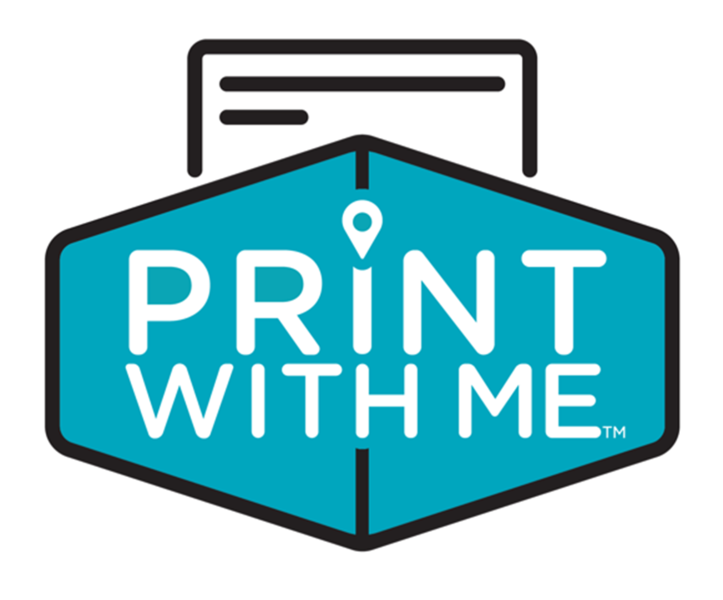
#1,371 WithMe is the parent company of PrintWithMe and SipWithMe. Their mission is centered on bringing high-quality convenience to you, whenever you need it. PrintWithMe is a self-serve, wireless printer station. SipWithMe is an innovative and cost-effective way to serve locally roasted premium coffee. Both companies can be found nationwide in retailers, co-working spaces, apartment buildings and more. WithMe experienced 471% revenue growth between 2018 and 2021. 2021 was a critical year for them, WithMe became the parent brand of PrintWithMe and they launched SipWithMe. They also attended 2022 NAA Apartmentalize. We eagerly await the new spaces that WithMe transforms with their unmatched convenience
Most of our portfolio companies are growing very rapidly, but some of the ones that likely would have been ranked very high on this list had they participated would be FactoryFix, SiteKick, Parallax, Inhabitr, and Quicklly. They are all serving fast growing markets with major tailwinds which has led to their explosive growth. FactoryFix is a talent platform that connects manufacturing businesses with skilled workers. At the start of the year, it announced a $10M Series A financing. SiteKick, a streamlined construction management software was recognized on the 2022 BuiltWorlds Smart Jobsites 50 Top List! Parallax is a workforce planning solution using predictive analytics to deliver a shared perspective around resource supply and demand for professional service organizations. Inhabitr, uses AI to make furniture subscription cheaper than owning. Quicklly, an Indian and South Asian grocer has expanded their partnership with Instacart to deliver Indian pantry staples in as fast as an hour. We are proud of the work of our portfolio companies and continue to celebrate all of their wins!
Career opportunities: Branch | Dispatch | WithMe | FactoryFix | SiteKick | Parallax | Inhabitr | Quicklly
Welcome back to the Great North Ventures newsletter! We have first product shipped, a large funding, as well as our monthly roundup of portfolio company updates and jobs.
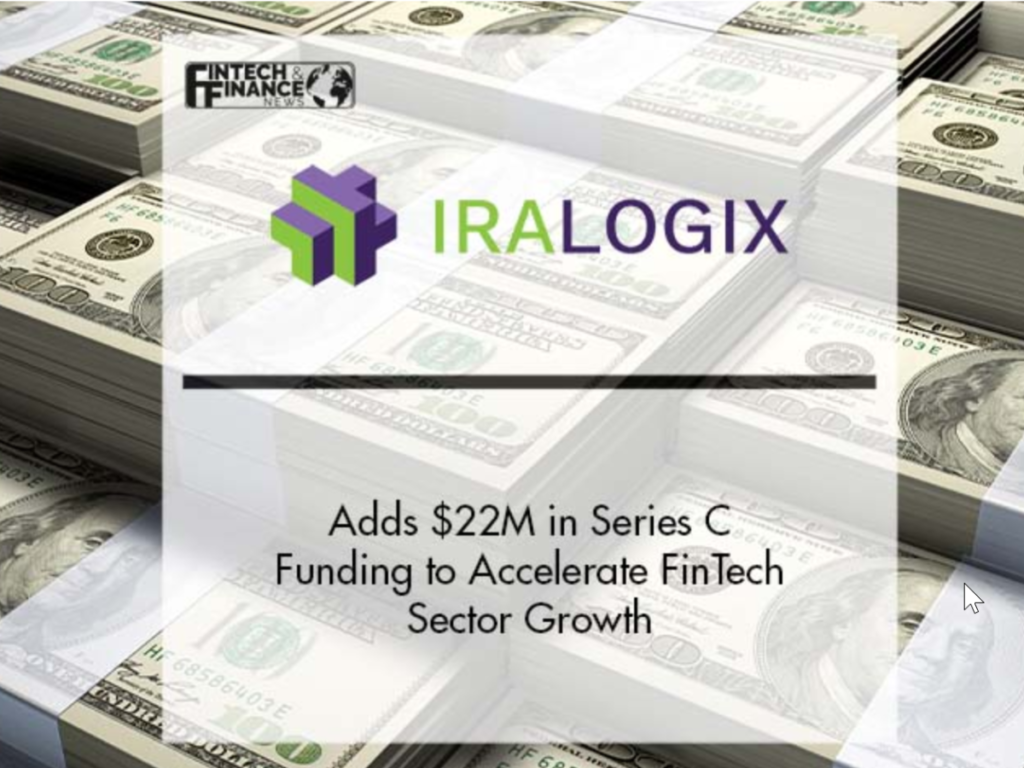
Portfolio company iraLogix raises $22M in Series C funding to accelerate growth with proceeds funding accelerated product development and sales expansion. The company grew by +100% each of the past three years.
iraLogix provides the leading fully paperless, white label, IRA record keeping and technology solutions. According to managing partner Ryan Weber, “iraLogix has transitioned from early adopters to large financial service companies over the past few years despite operational challenges presented to the company and their clients over the pandemic. Their management team’s experience in the industry, coupled with new technology, have helped the company establish themselves as emerging category leaders.”
The company announced on July 13th, 2022 a $22 million Series C raise led by a group of individual financial technology investors represented by Matt Vettel and Nick Cayer, along with participation from Great North Ventures, Hybrid Capital, Roan Capital, University Growth Fund, Trog Hawley Capital, Circadian Ventures, and Riverfront Ventures.
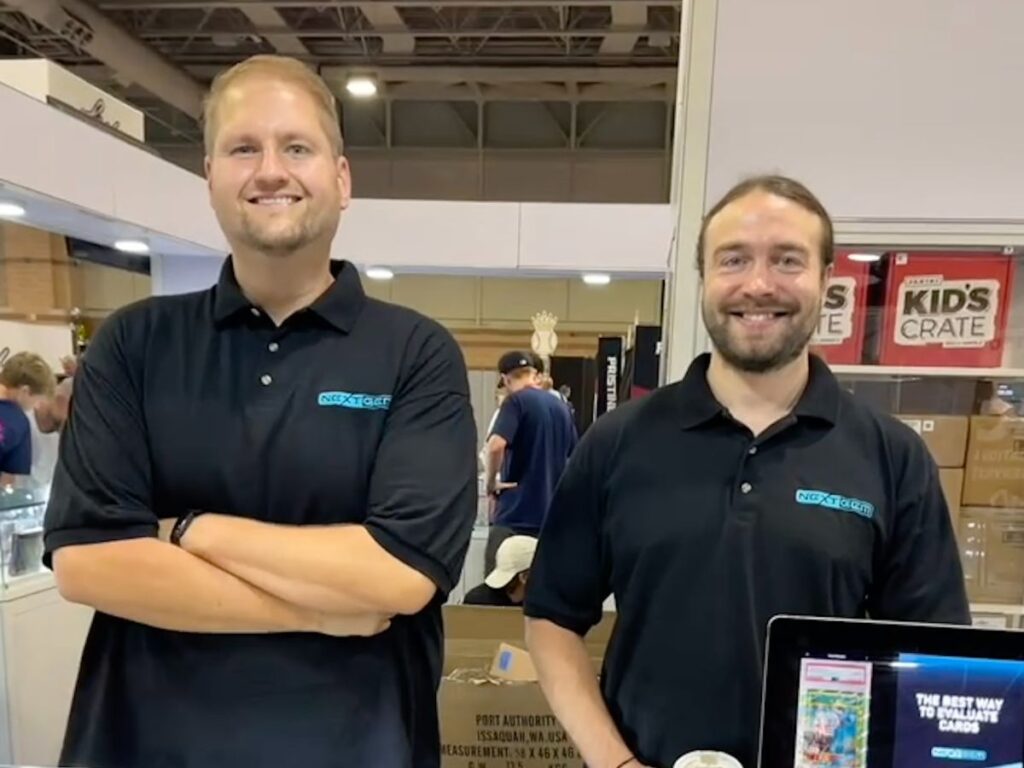
NextGem held it’s public launch at the Nationals Sports Collectors Conference in Atlantic City, New Jersey (7/27 – 7/31) where it exhibited in front of tens of thousands of top trading card collectors. NextGem stood out amongst other vendors given it’s unique focus to provide ambitious collectors, who struggle to get the most out of social media, the tools they need to succeed in sharing, trading, and connecting with others to earn more money, find better deals, and increase their stature. Co-Founders (above left to right) Scott Wright and David Anderson spent most of the week educating 1,000+ collectors on the benefits of the service. The app has grown it’s monthly active userbase by at least 30% every month since it’s (beta) debut in January. The product is now generally available on Apple’s App Store and with improving support for many of the features over the web.
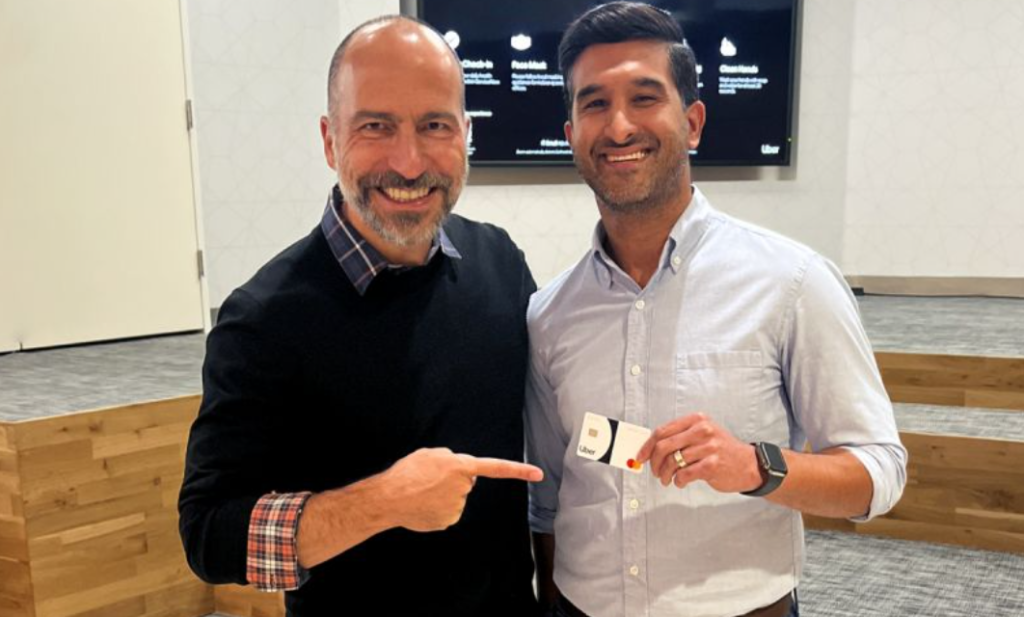
Branch CEO and Founder Atif Siddiqi shown here with Uber CEO Dara Khosrowshahi for the new introduction of the Uber Pro Card powered by Branch. The new solution promises to transform the driver and courier experience with new payments innovations, rewards, and tools. The Uber Pro Card waitlist is now open for signup.
Portfolio News
59 Open Positions
See all open positions on the Great North Ventures careers page
Dispatch is hiring for 9 positions
Structural is hiring for 1 position
FactoryFix is hiring for 5 positions
TeamGenius is hiring for 1 position
PrintWithMe is hiring for 14 positions
Parallax is hiring for 1 position
Branch is hiring for 13 positions
Inhabitr is hiring for 1 position
PartySlate is hiring for 5 positions
Flywheel is hiring for 1 position
Backhouse Brands is hiring for 1 position
Micruity is hiring for 1 position
Omnia Fishing is hiring for 6 positions
iraLogix is a technology company offering fully paperless, white label, IRA record keeping and technology solutions.
iraLogix is a Great North Ventures Fund I portfolio company.
The company announced on July 13th, 2022 a $22 million Series C raise led by a group of individual financial technology investors represented by Matt Vettel and Nick Cayer, along with participation from Great North Ventures, Hybrid Capital, Roan Capital, University Growth Fund, Trog Hawley Capital, Circadian Ventures, and Riverfront Ventures.
Read more here.
Visit the iraLogix website.
Welcome back to the Great North Ventures newsletter! We have grant funding news, as well as our monthly roundup of portfolio company updates and jobs.

Portfolio company Flywheel has earned a grant from the Bill & Melinda Gates Foundation for its work making data accessible to medical researchers!
Flywheel is the leading data management platform for biomedical research and collaboration. According to managing partner Pradip Madan, “Flywheel’s work on data management and collaboration in life sciences and clinical research has created a data management powerhouse accelerating the bench-to-bedside journey of numerous initiatives.”
The $829,000 grant will provide a centralized, cloud-based research infrastructure to an international cohort of researchers led by King’s College of London, and support research on the neurodevelopmental health of children growing up in poverty and other adverse environments in low- and middle-income countries.
“We’re looking forward to leveraging Flywheel not only to make data easily accessible to our neuroimaging partners around the world, but also to develop shared analytic pipelines and maintain consistency and compatibility,” said Professor Steven Williams, PhD, Professor of Neuroimaging Sciences at King’s College London, and a principal investigator on the project.
“This project will ultimately build the knowledge and analytic capacity of LMIC researchers, allowing them to further optimize neuro-focused interventions in their settings.”
Great North Ventures is Hiring!
We have 2 positions open, including a Venture Capital Analyst and an Executive Assistant.
Interested in a remote-first, innovation-centric culture in one of the top up-and-coming markets of an exciting industry? Apply at the links above.
Are you a founder worried about managing growth through a downturn?
In our latest episode of Execution is King, we talked with Orazio Buzza, Founder and CEO of Fooda. Orazio shared his approach to manage growth in the face of unpredictable variables. He outlines a milestone approach that works when forecasting fails and headwinds start to blow, and helps keep expenses from outpacing revenues as your business grows.
Listen to the full episode here:
https://lnkd.in/gMNZHBdK
Portfolio News
Dispatch Expands Its Last-Mile Delivery Service Into California and New York
Great North Ventures invests locally
Good Design Awards Highlight Connected Devices
NoiseAware Introduces CrowdControl for Elevated-Occupancy Detection
Madison startup that helps consumers navigate food allergen ‘minefield’ explores new tech horizons [Allergy Amulet]
Improving carriers’ cash flow with Branch — Taking the Hire Road
79 Open Positions
See all open positions on the Great North Ventures careers page
Dispatch is hiring for 9 positions
Structural is hiring for 1 position
FactoryFix is hiring for 5 positions
Pitchly is hiring for 1 position
PrintWithMe is hiring for 18 positions
Parallax is hiring for 3 positions
Branch is hiring for 18 positions
Inhabitr is hiring for 1 position
PartySlate is hiring for 3 positions
Flywheel is hiring for 4 positions
Skillit is hiring for 1 position
NextGem is hiring for 2 positions
Backhouse Brands is hiring for 1 position
Yardstik is hiring for 3 positions
Micruity is hiring for 3 positions
Omnia Fishing is hiring for 6 positions
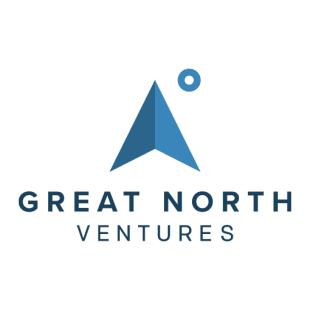
April Newsletter
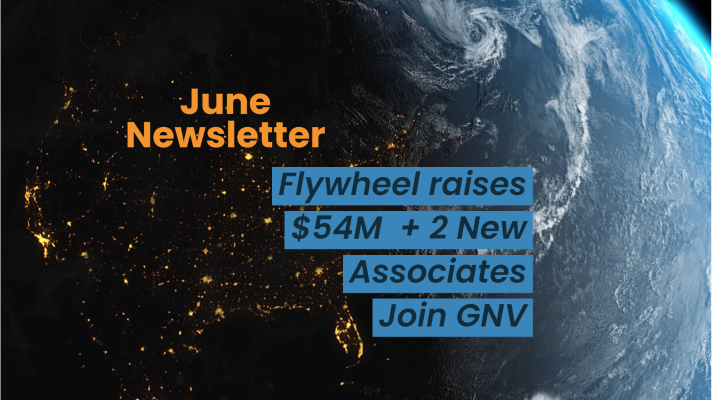
June Newsletter
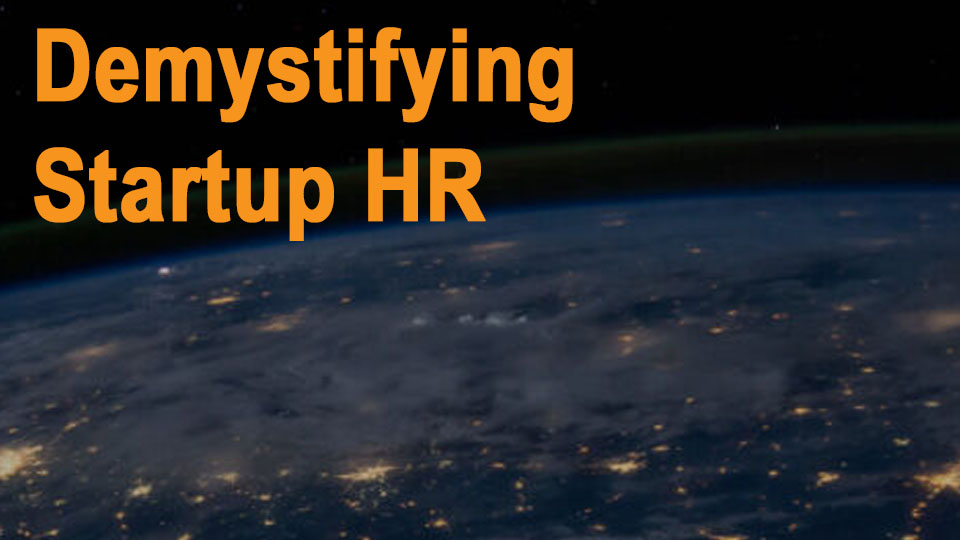
Demystifying Startup HR
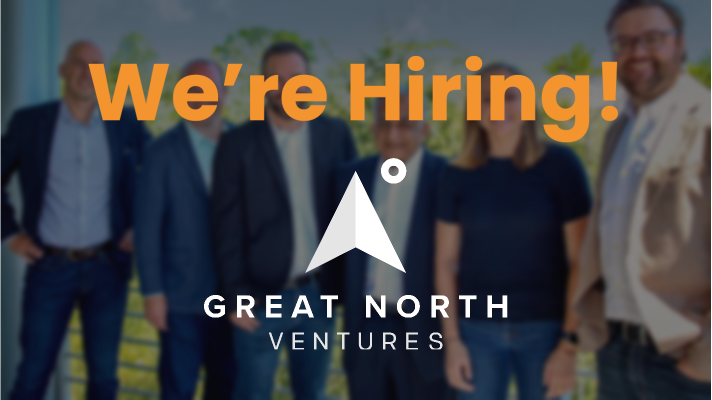
Head of Finance & Fund Administration- Venture Capital Firm (Remote)

Demystifying Startup HR
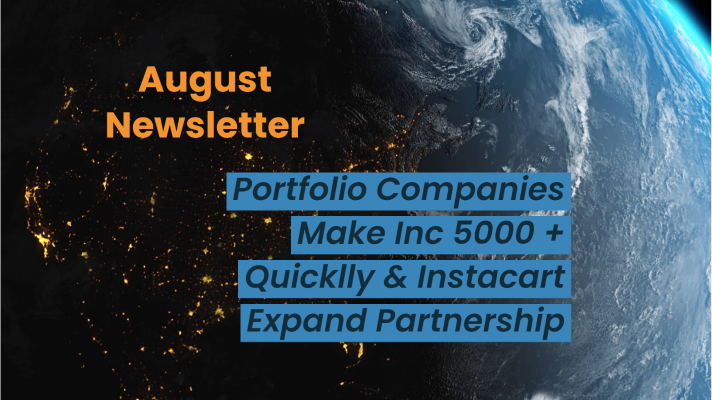
3 Portfolio Companies Make Inc. 5000 + Quicklly & Instacart Expand
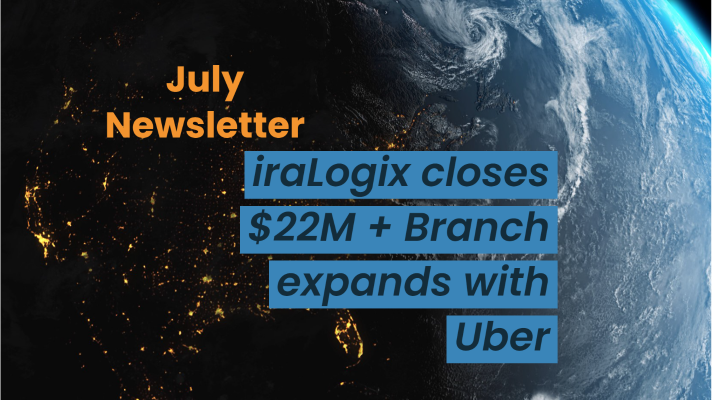
iraLogix closes $22M + Branch expands with Uber
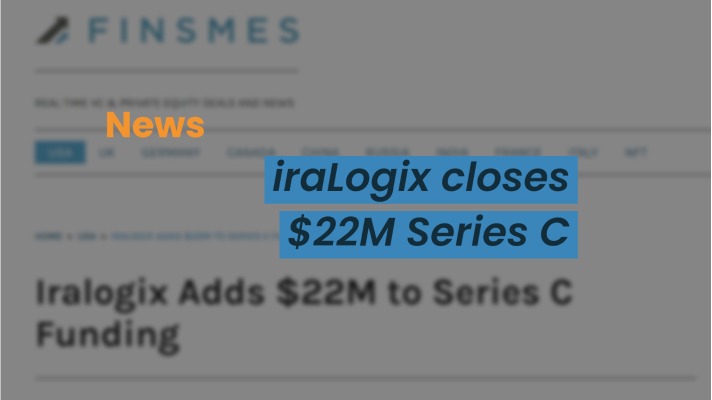
iraLogix closes $22M Series C

Flywheel lands Gates Foundation grant

Venture Capital Analyst
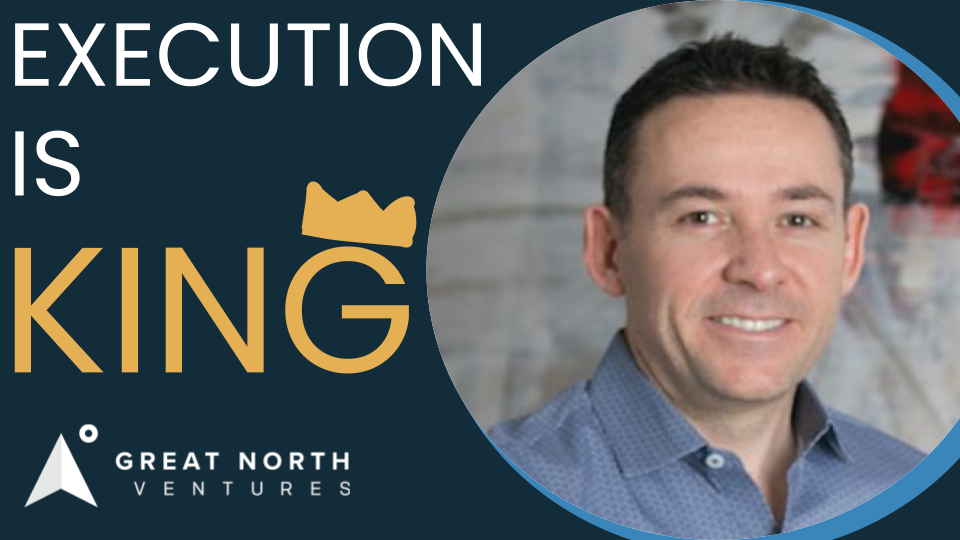
Orazio Buzza, Founder and CEO of Fooda – on Episode 13, “Execution is King”
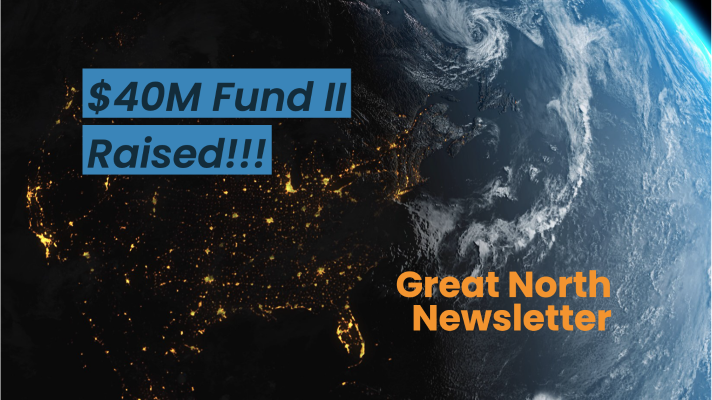
$40M Fund II Raised!
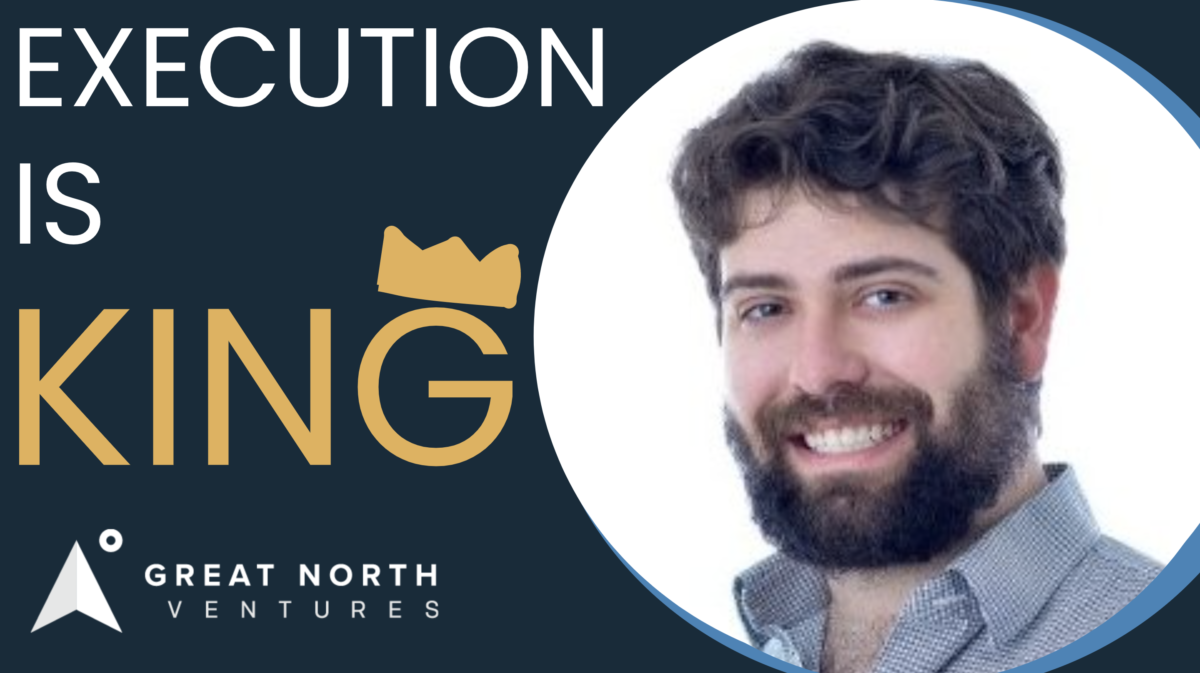
Eric Martell, Founder of Pear Commerce: Episode 13, Execution is King
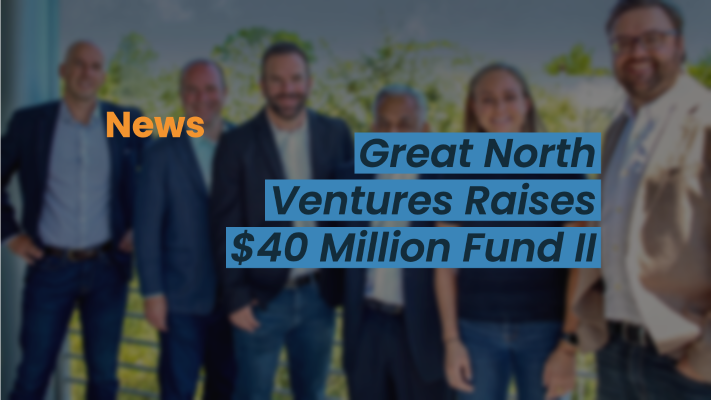
Great North Ventures Raises $40 Million Fund II
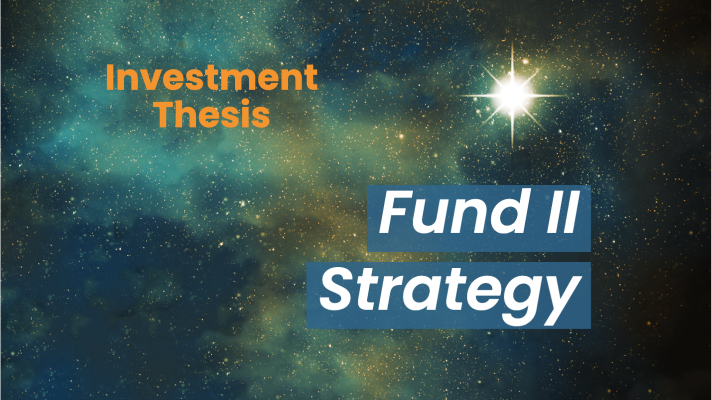
Investment Thesis: Fund II Strategy
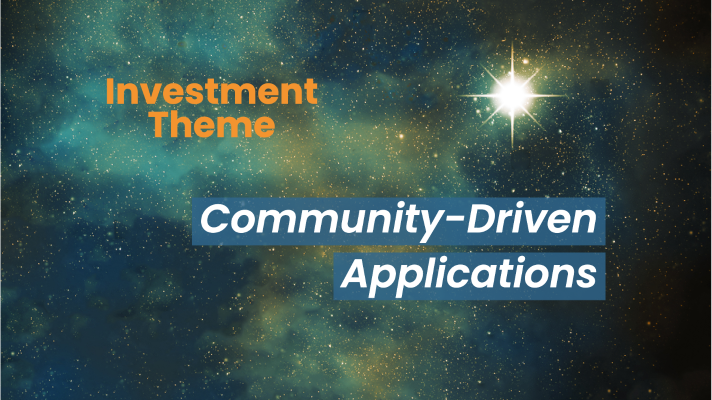
Investment Theme: Community-Driven Applications

Investment Theme: Digital Transformation Through AI
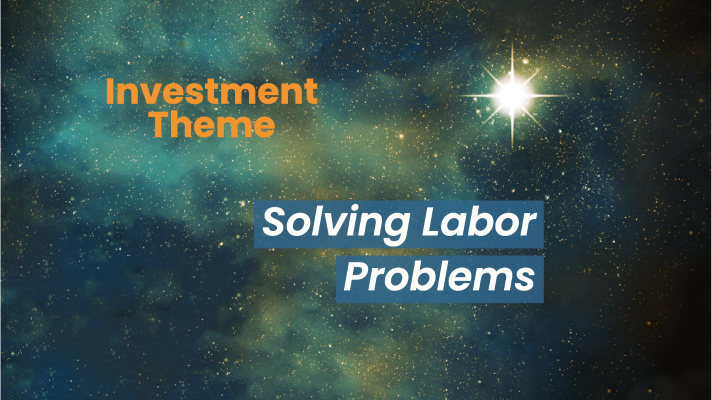
Investment Theme: Solving Labor Problems
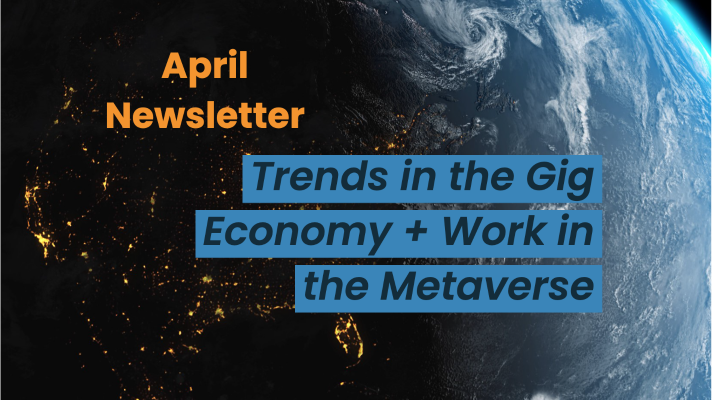
Trends in the Gig Economy + Work in the Metaverse
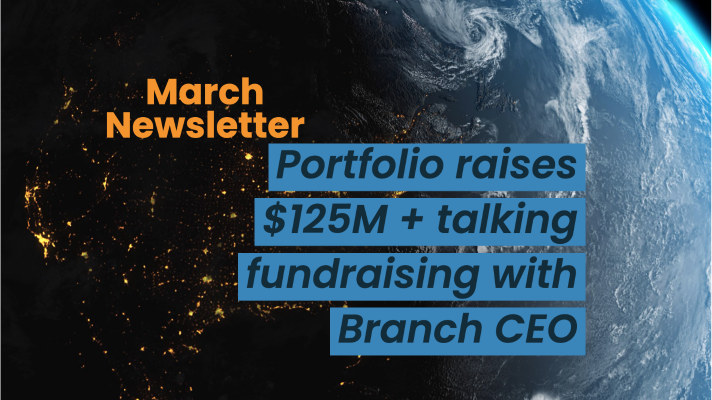
Portfolio raises $125M + talking fundraising with Branch CEO
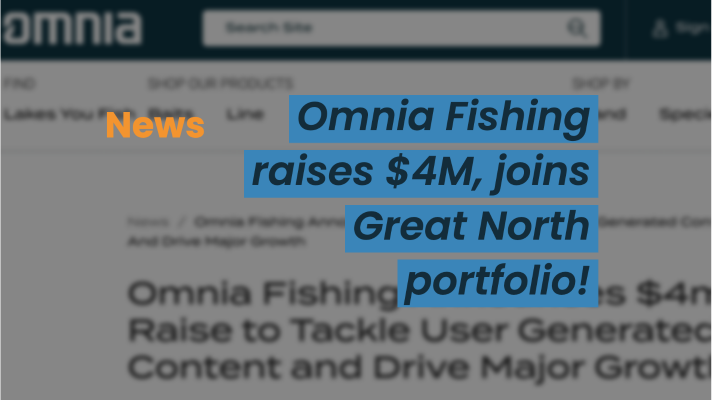
Omnia Fishing closes $4M round, joins Great North portfolio!
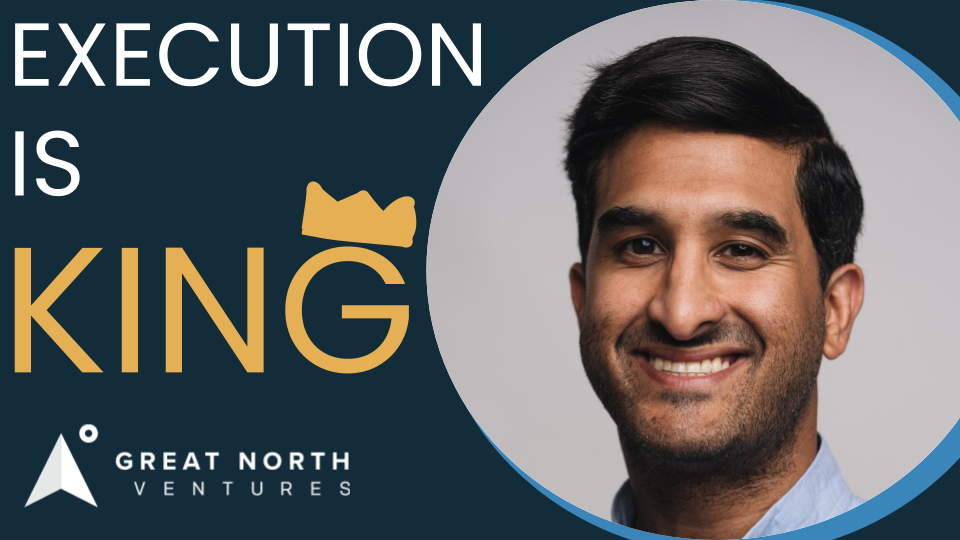
Atif Siddiqi, Founder/CEO of Branch: Episode 11, Execution is King

Michael Martocci, CEO and Founder of SwagUp: Episode 10, Execution is King
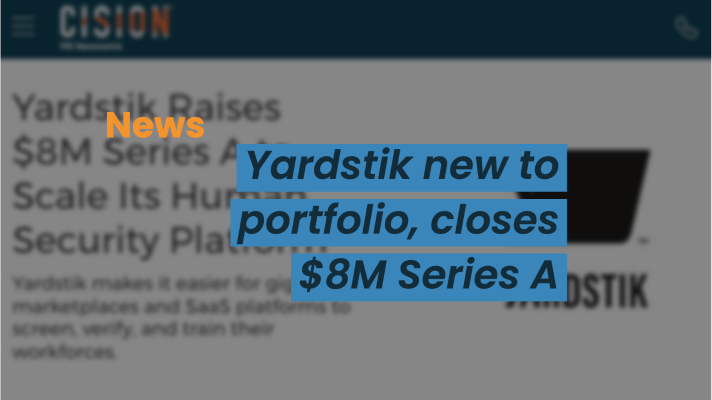
Yardstik new to portfolio, closes $8M Series A
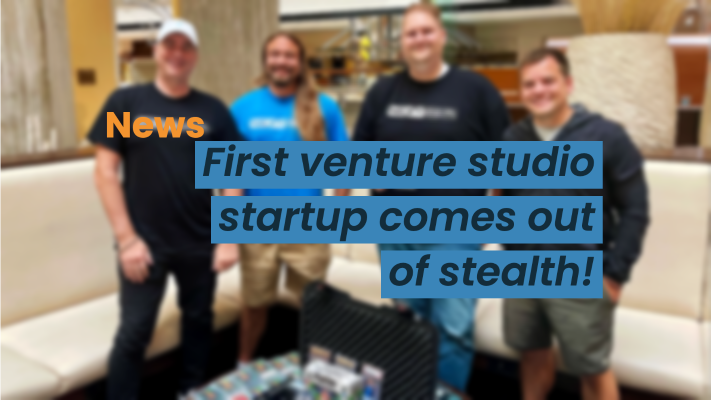
First venture studio startup comes out of stealth!
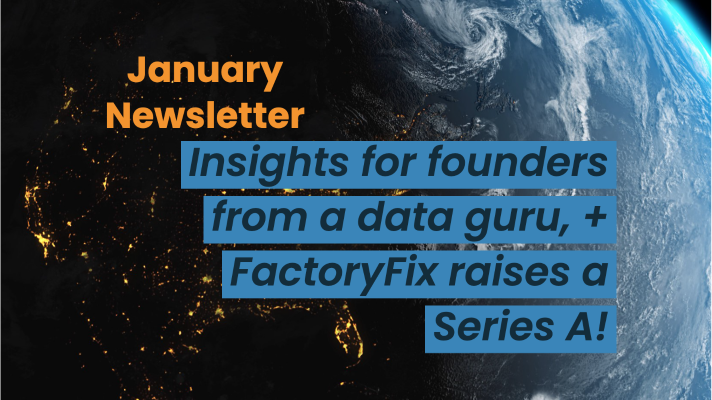
Insights for founders from a data guru, + FactoryFix raises a Series A!
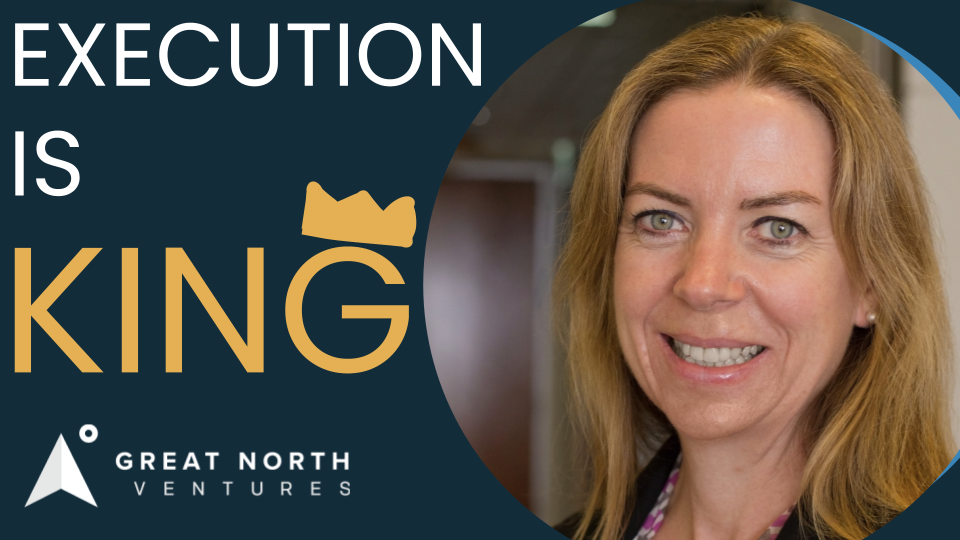
Una Fox: Episode 9, Execution is King

Start With a Mobile App, Not a Website
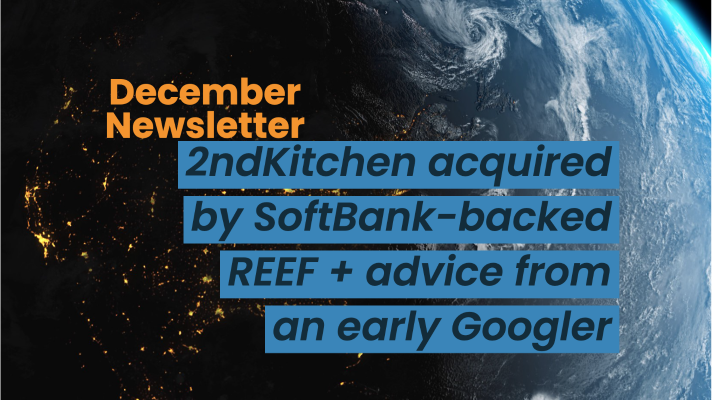
2ndKitchen acquired by SoftBank-backed REEF + advice from an early Googler
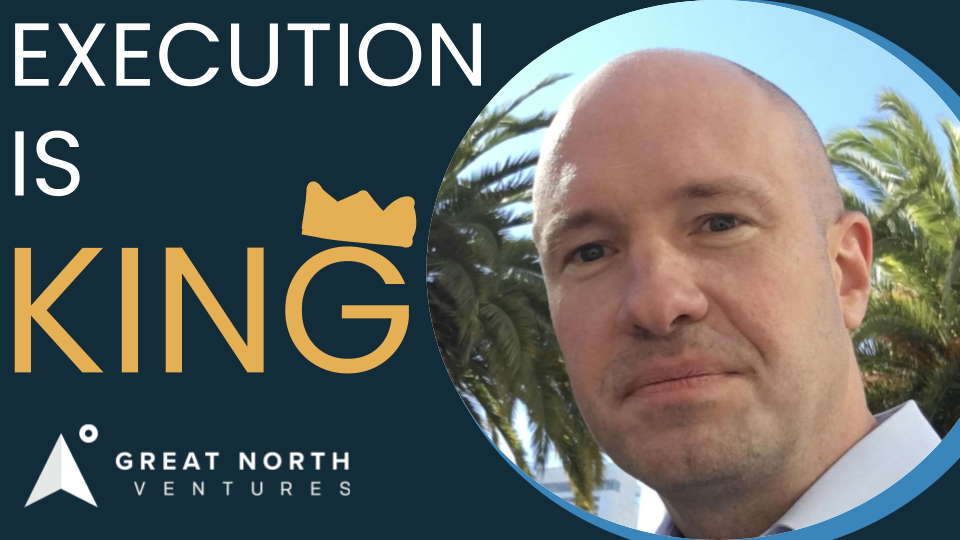
Joe Sriver, 4giving: Episode 8, Execution is King
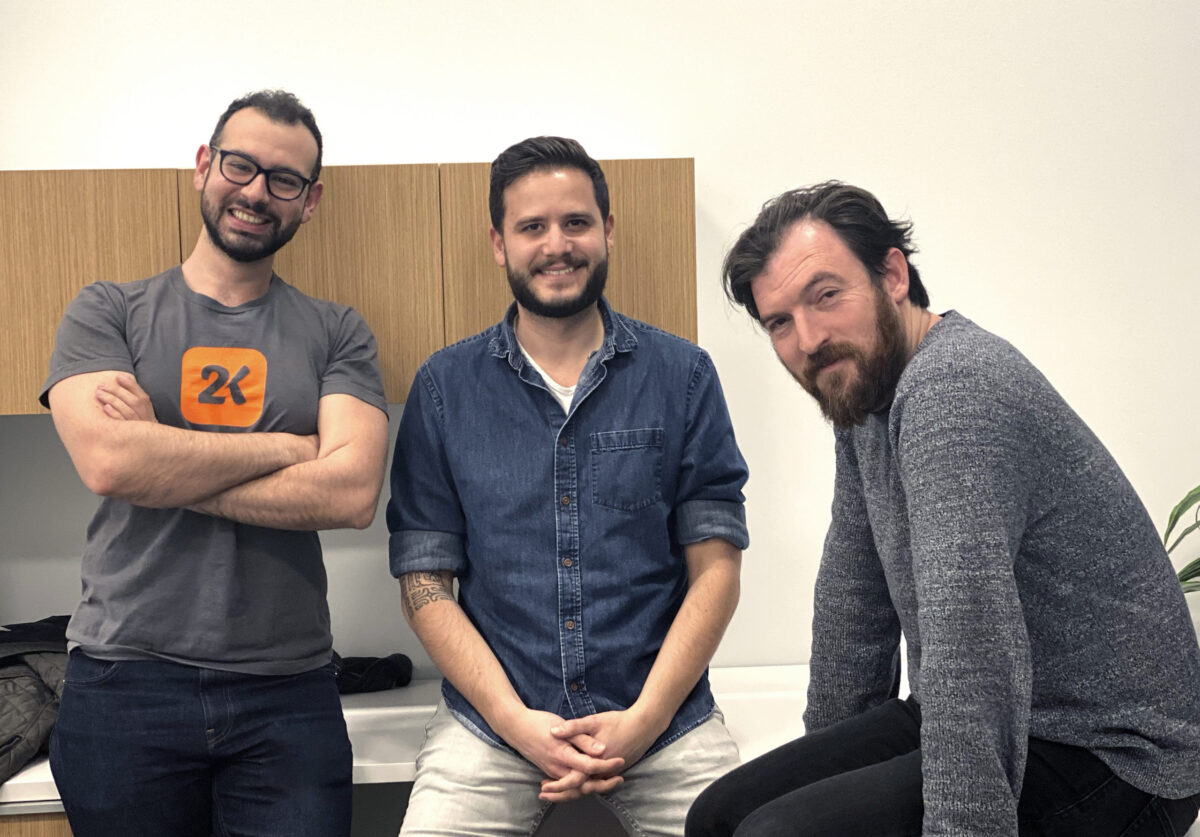
2ndKitchen Acquired by REEF
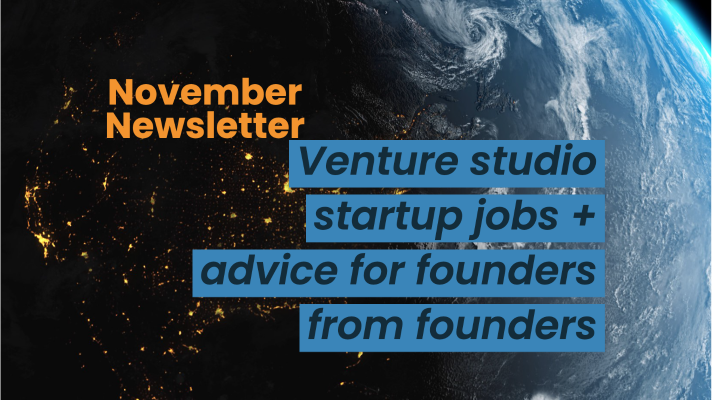
Venture studio startup jobs + advice for founders from founders
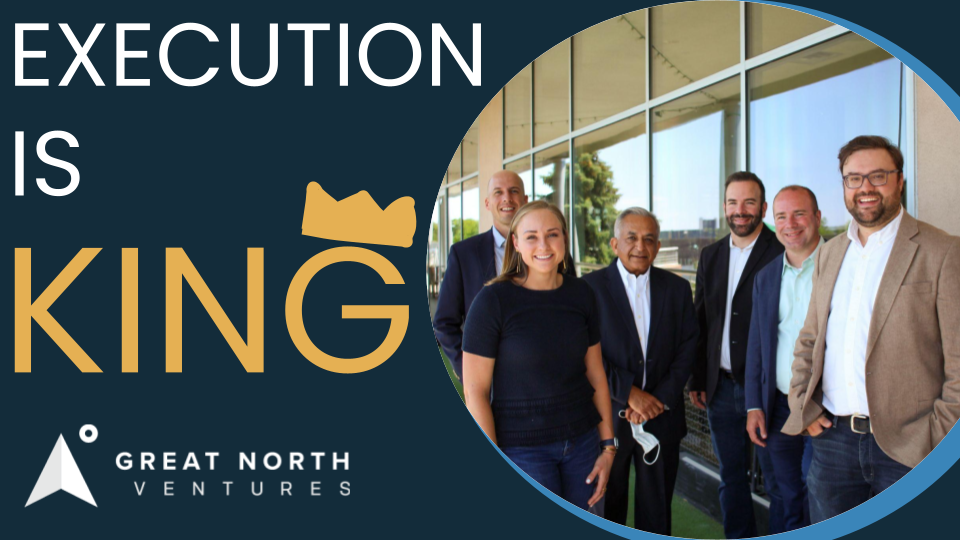
Best Advice from the Great North Annual Event: Episode 7, Execution is King
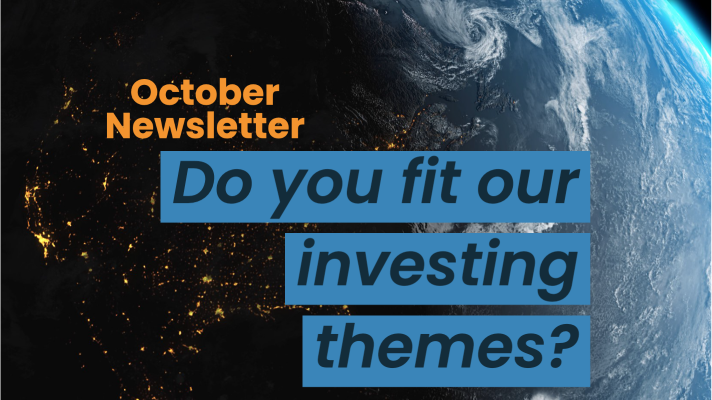
Newsletter: Do you fit our investing themes?
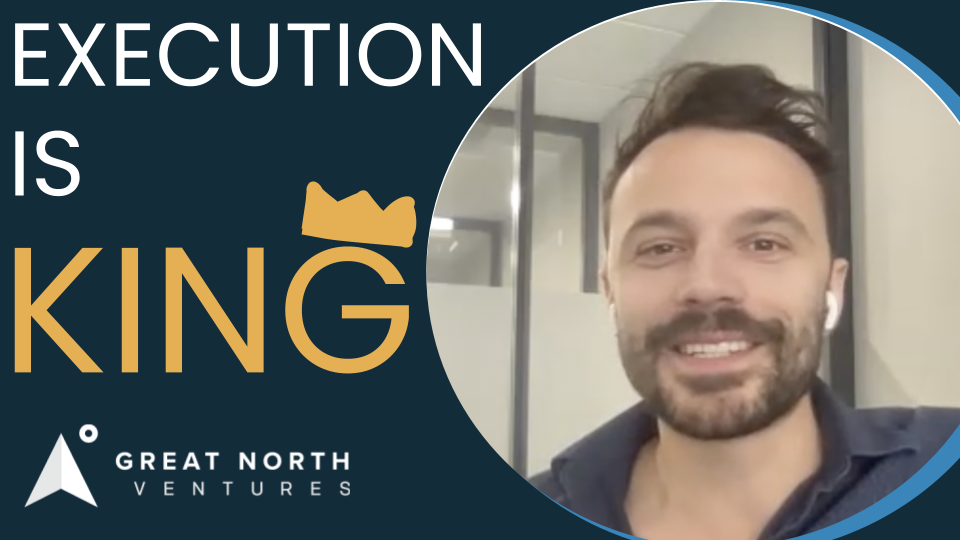
Jonathan Treble, PrintWithMe: Episode 6, Execution is King
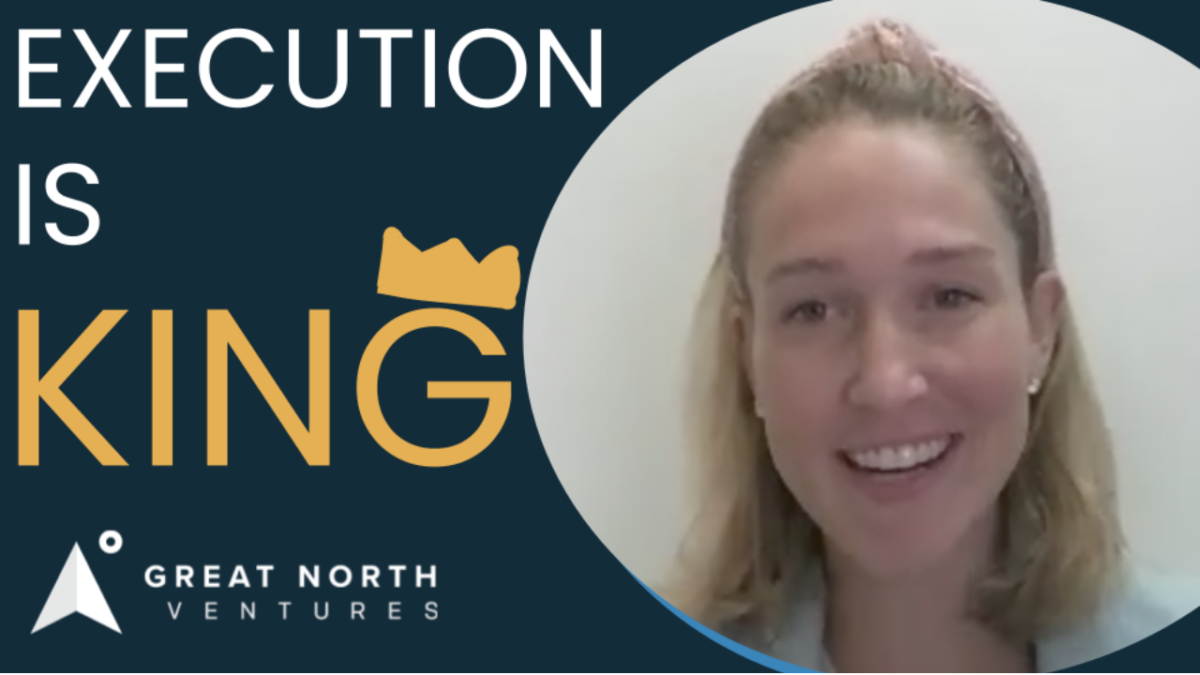
Anna Mason, Revolution: Episode 5, Execution is King
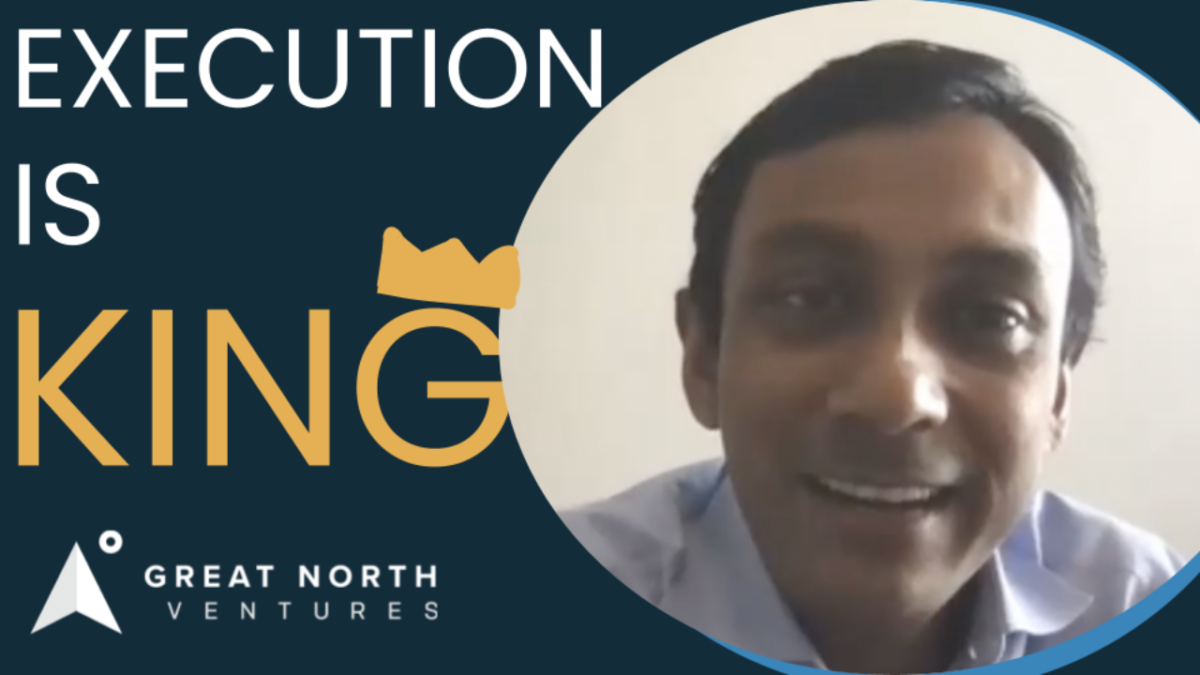
Mynul Khan, FieldNation: Episode 4, Execution is King
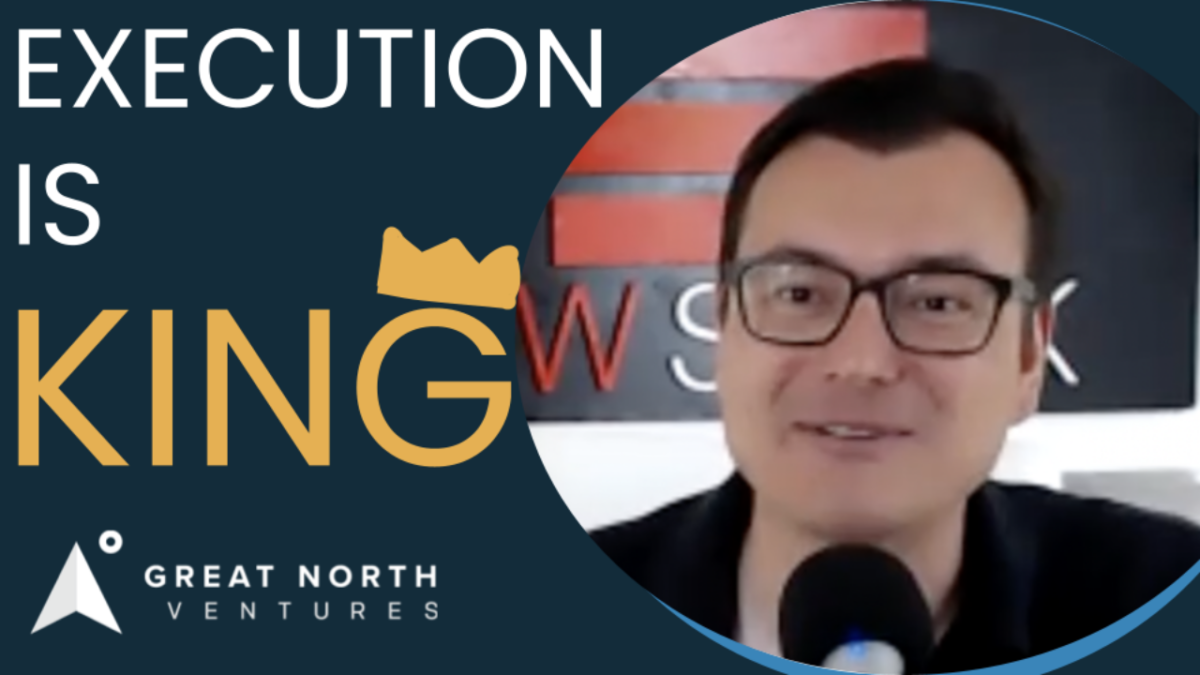
Nick Moran, New Stack Ventures: Episode 3, Execution is King
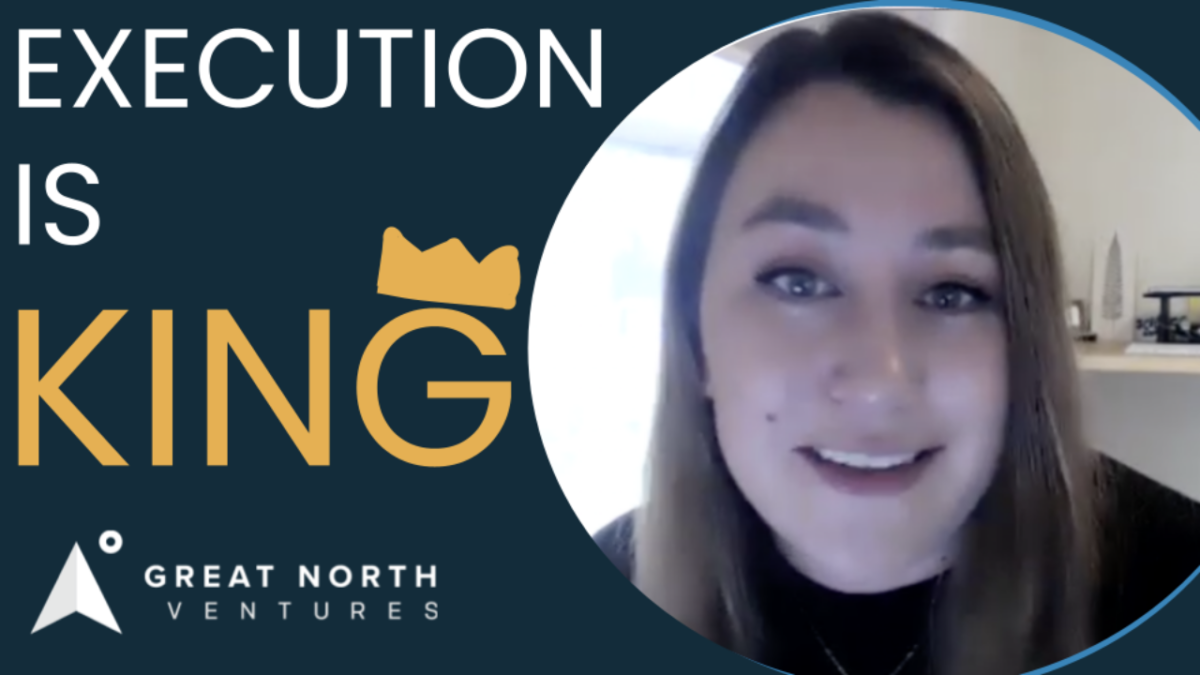
Molly Pyle, Center on Rural Innovation (CORI): Episode 2, Execution is King
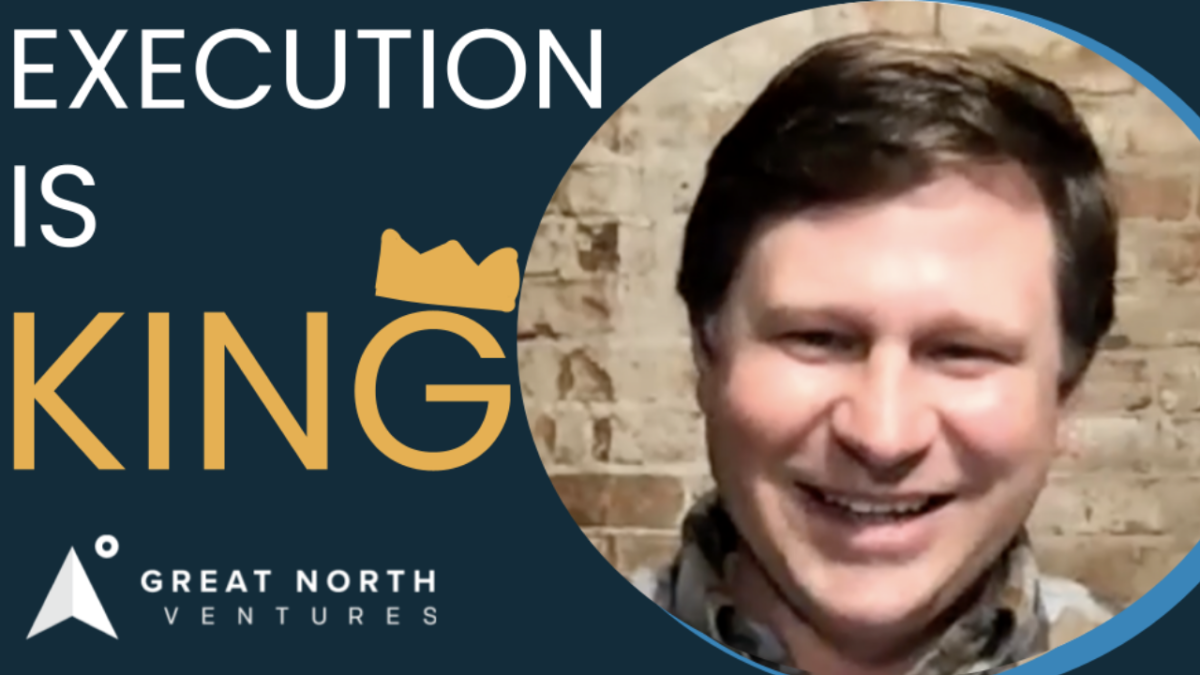
Justin Kaufenberg, Rally Ventures: Execution is King Episode 1
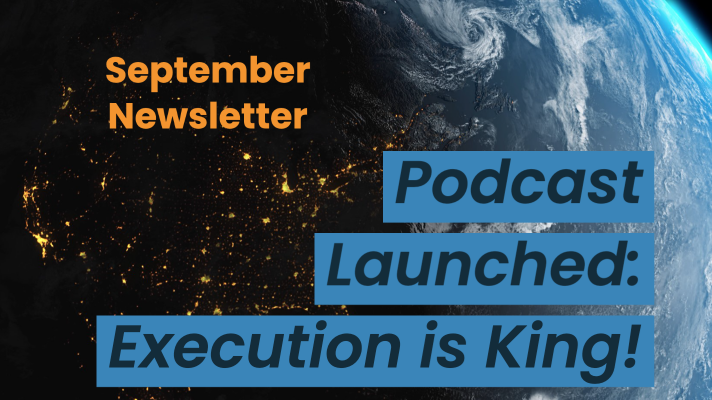
Newsletter: “Podcast Launched: Execution is King!”
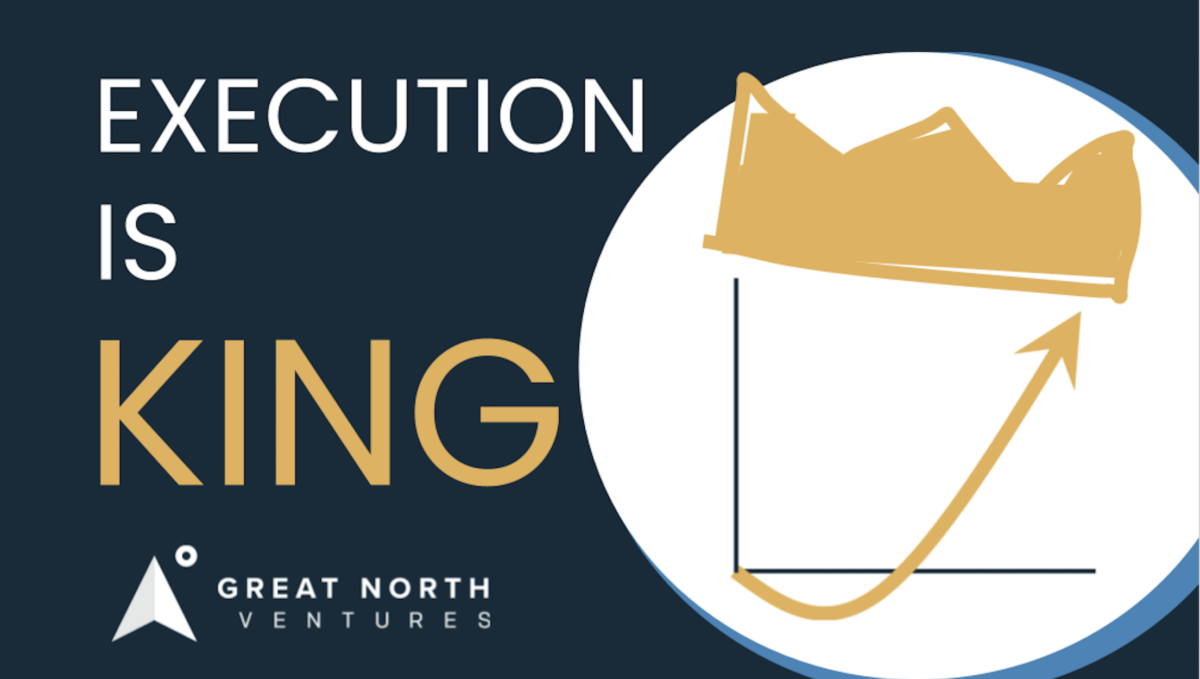
“Execution is King” – the Great North Ventures Podcast
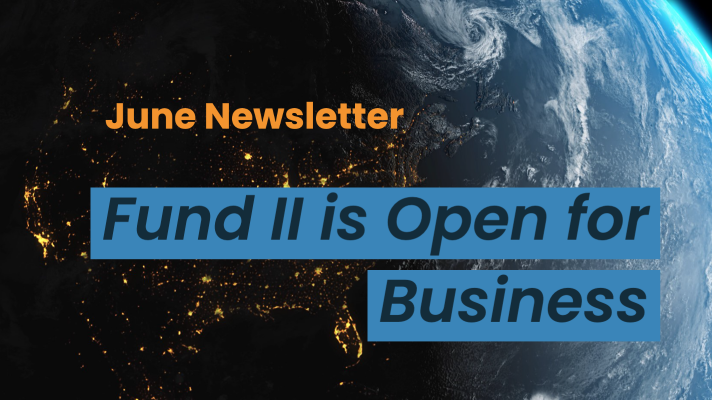
Newsletter: Fund II is open for business!
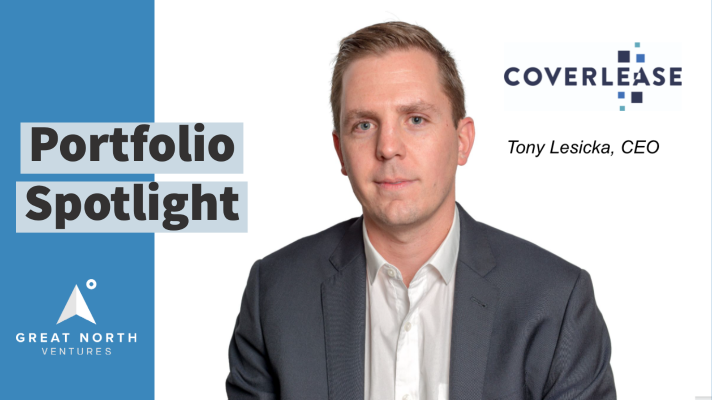
Unlocking the Potential of Anonymized Commercial Real Estate (CRE) Data
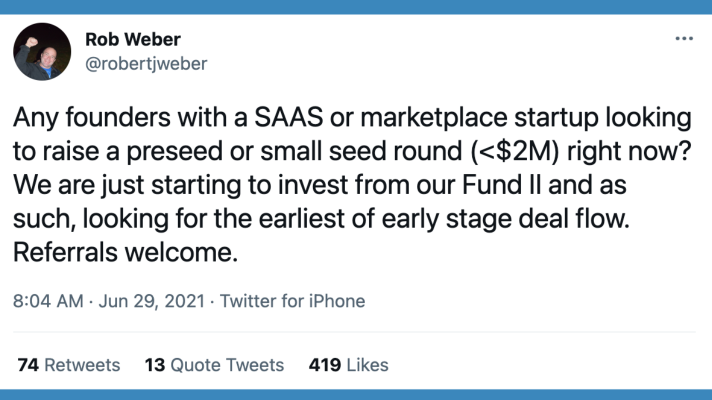
Fund II is open for Business!
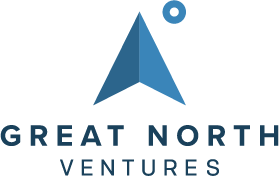
Mike Schulte Promoted to Venture Partner
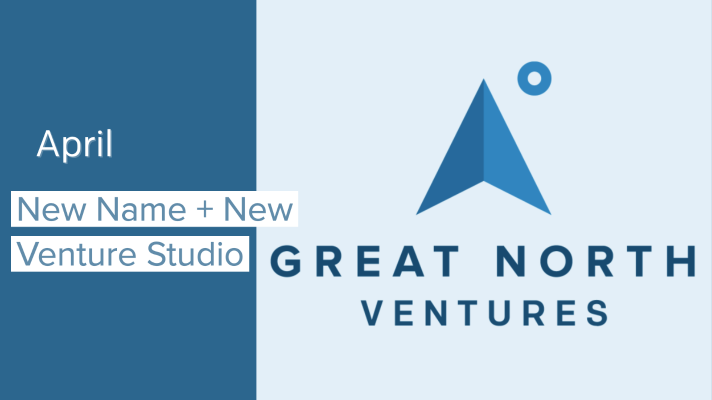
New Name + New Venture Studio
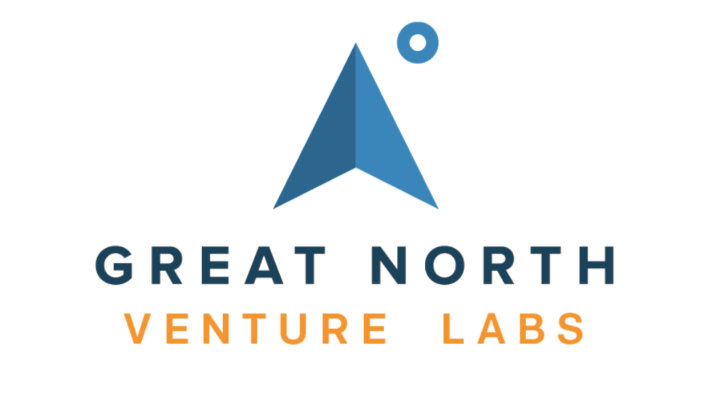
Great North Launches Startup Studio

We Don’t Need No [full-time MBA] Education
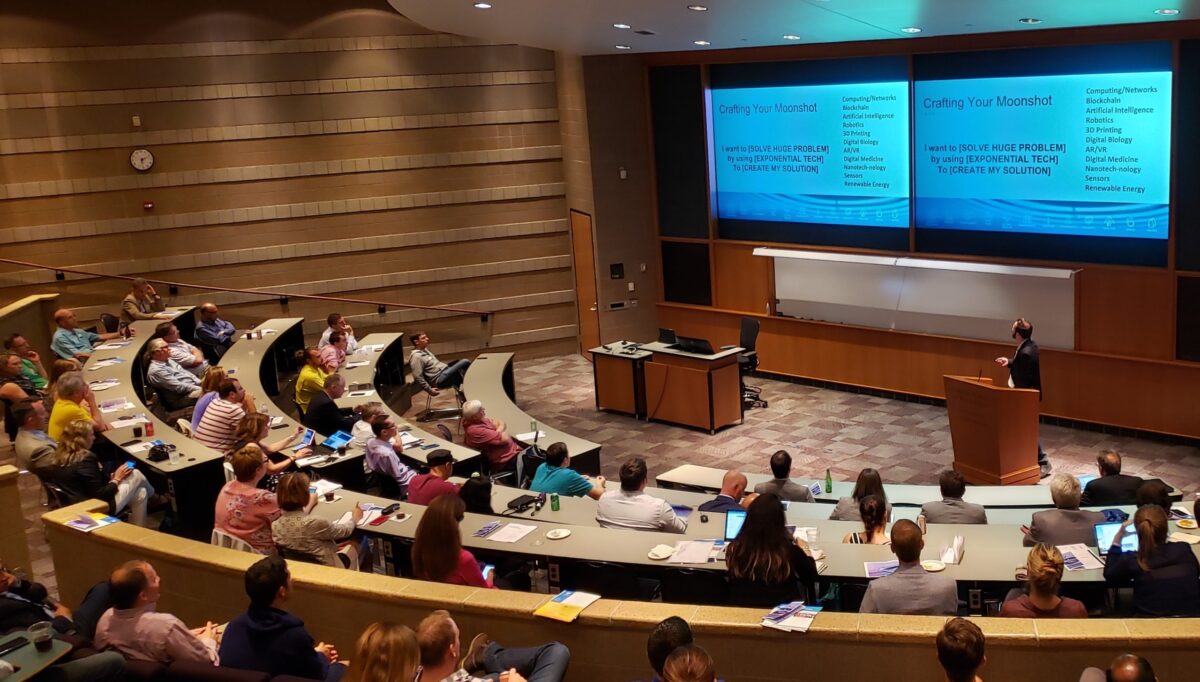
How the University of Minnesota is Embracing Startup Culture

Top Stories of 2020, iraLogix, and LaunchMN Calls for Mentors

Building Capacity for Innovation
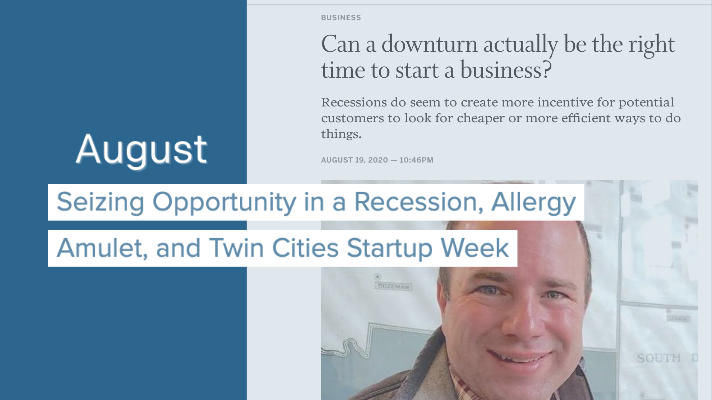
Seizing Opportunity in a Recession, Allergy Amulet, and Twin Cities Startup Week
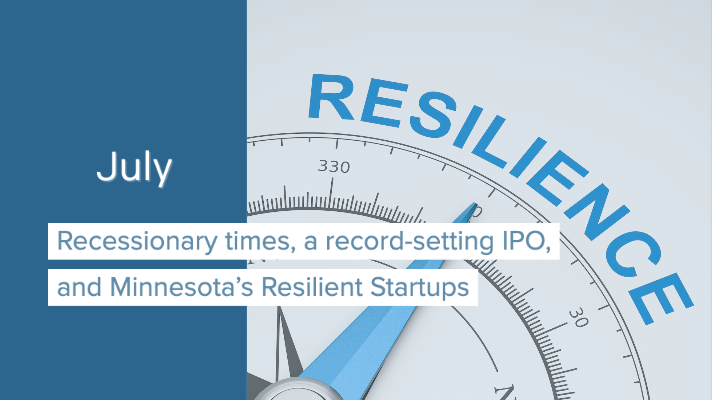
Recessionary times, a record-setting IPO, and Minnesota’s Resilient Startups

Minnesota's Resilient Startups

July 4th, Equitable American Dream-ing, and Robots Diagnosing COVID
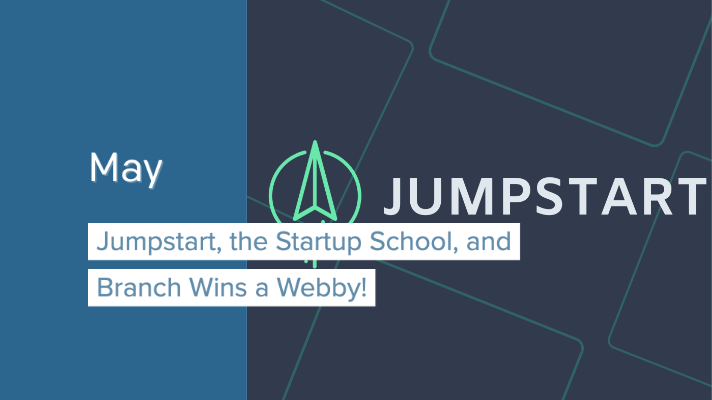
Jumpstart, the Startup School, and Branch Wins a Webby!
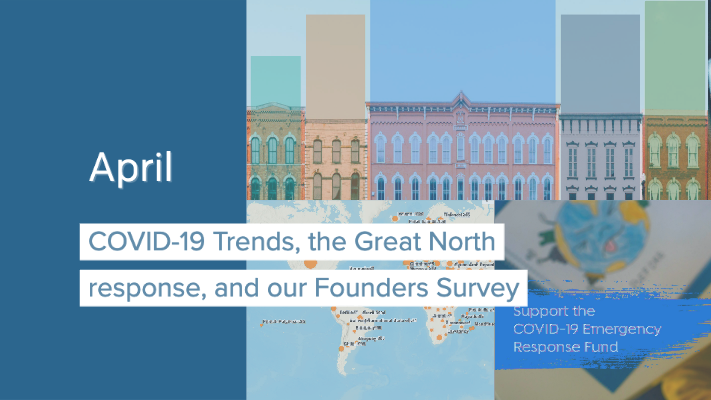
COVID-19 Trends, the Great North response, and our Founders Survey

Giving in the Time of Coronavirus

COVID-19 Resources for Startups, State-by-State
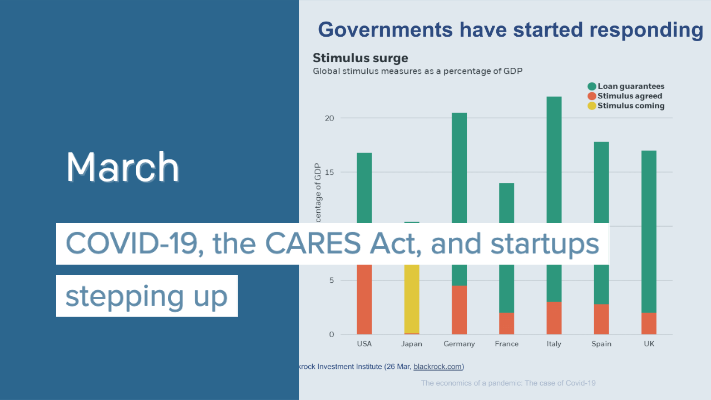
COVID-19, the CARES Act, and startups stepping up
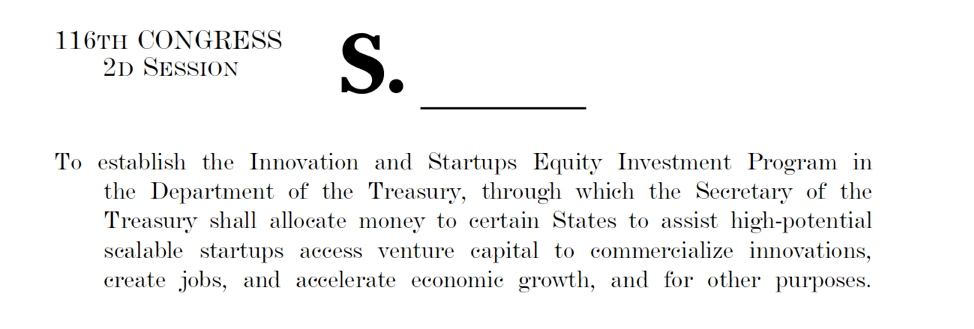
New Business Preservation Act

Digital Future Boardroom, PartySlate, and The Lean Startup School

Great North Labs’s Startup Summit 2020

Great North Labs's Startup Summit 2020

World Economic Forum, NoiseAware, and the Startup School reboot

Great North Labs at the World Economic Forum 2020 in Davos
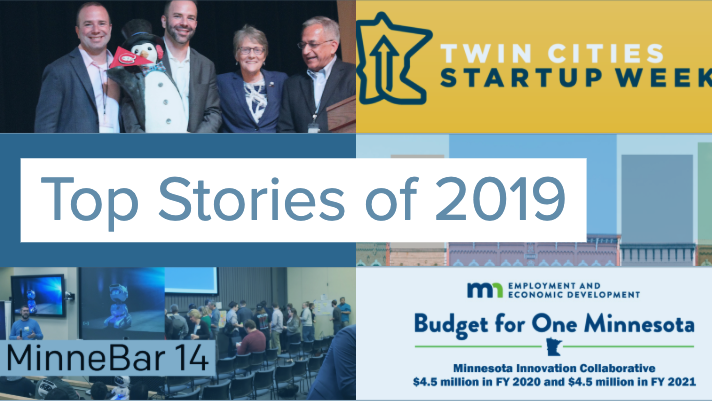
Top 5 Stories of 2019

Taking the Founders Pledge, Inhabitr, and gBETA Pitch Night

Founders Pledge: Support the Organizations that Support You
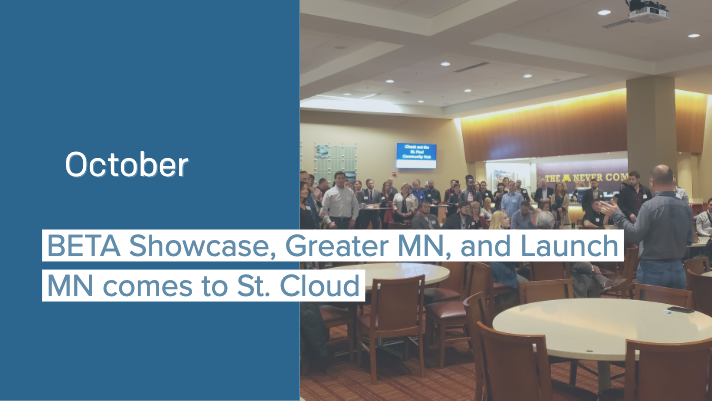
BETA Showcase, Greater MN, and Launch MN comes to St. Cloud
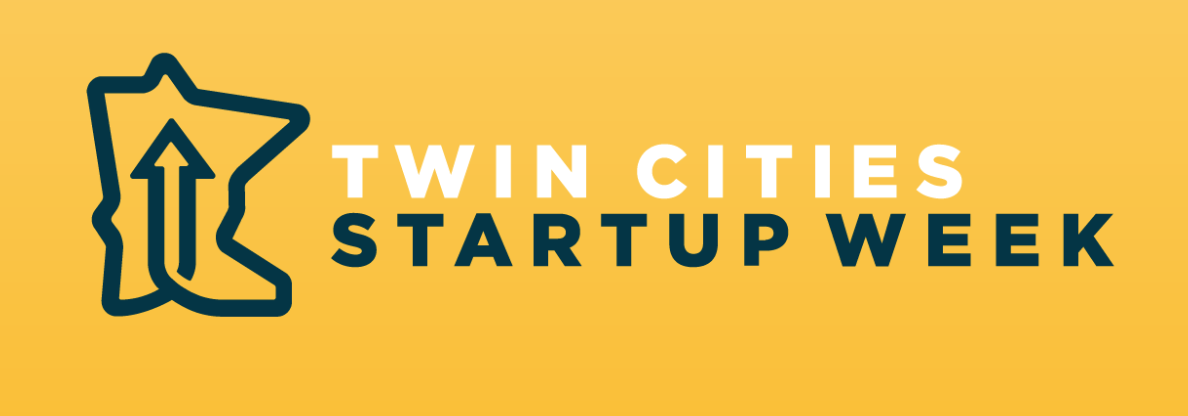
7 Places to Spot Us at Startup Week
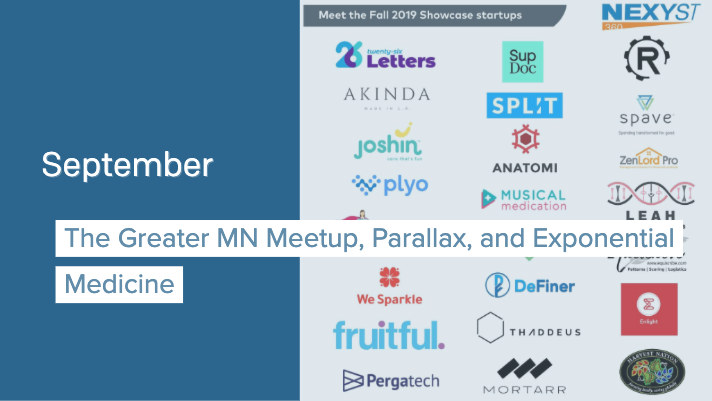
The Greater MN Meetup, Parallax, and Exponential Medicine
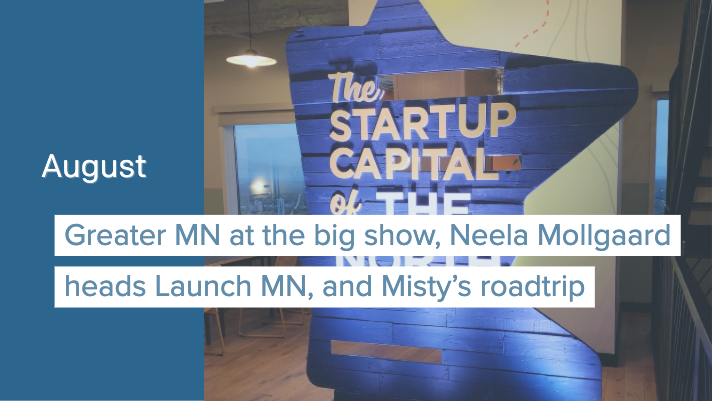
Greater MN at the big show, Neela Mollgaard heads Launch MN, and Misty’s roadtrip.

Talking VC, tech kids, and Forge North’s Horizon
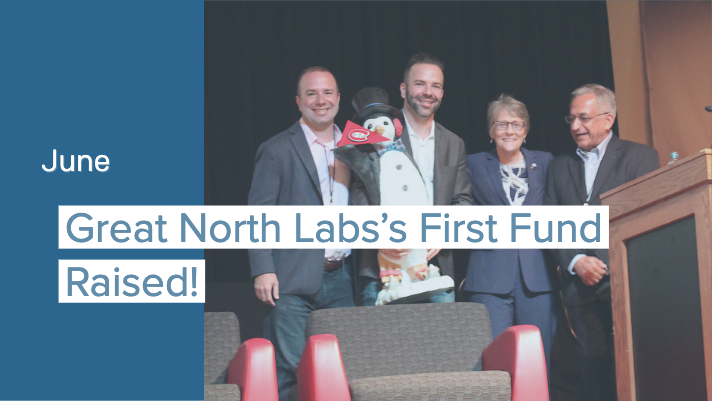
June: Great North Labs’s first fund raised!
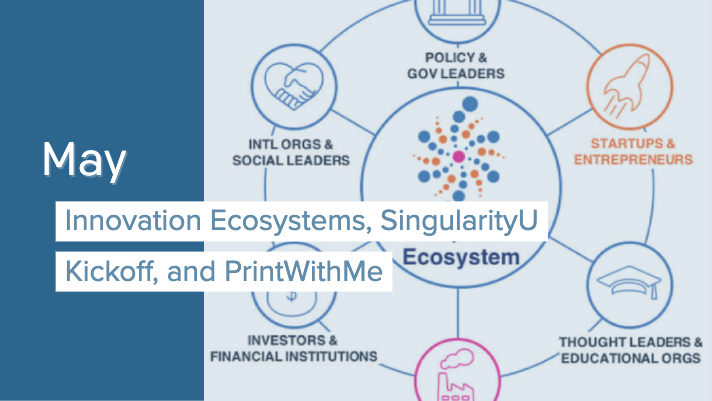
May: Innovation Ecosystems, SingularityU Kickoff, and PrintWithMe
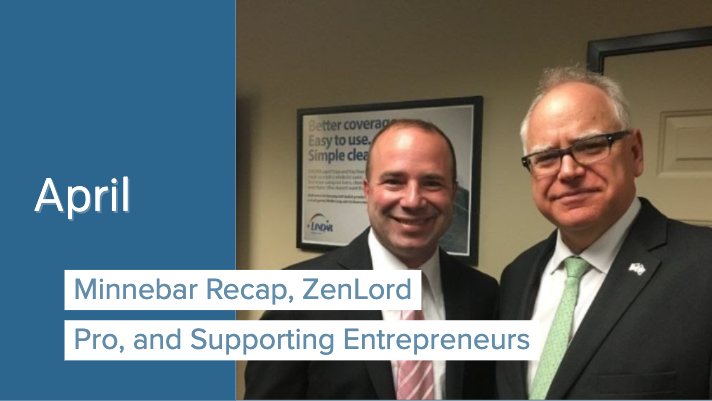
April: Minnebar Recap, ZenLord Pro, and Supporting Entrepreneurs
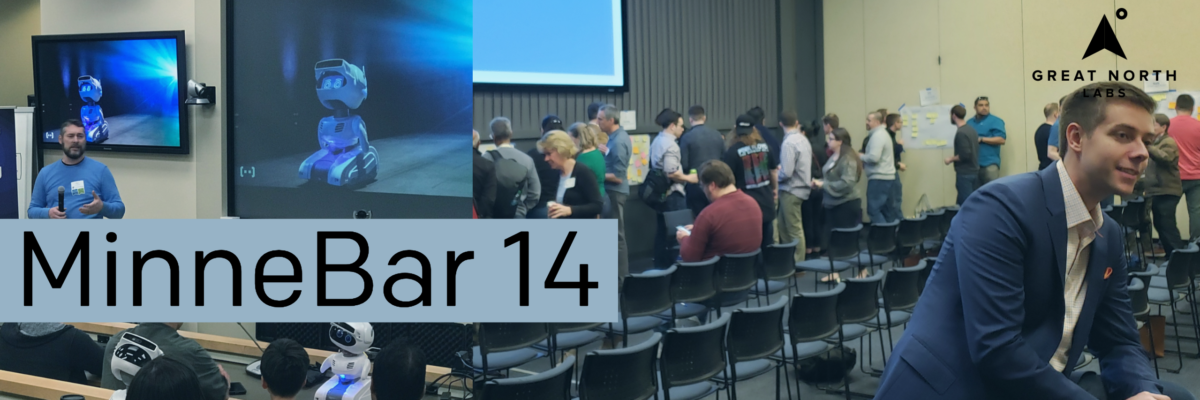
MinneBar 14 Recap

Dispatch and 2ndKitchen claim Tech Madness titles
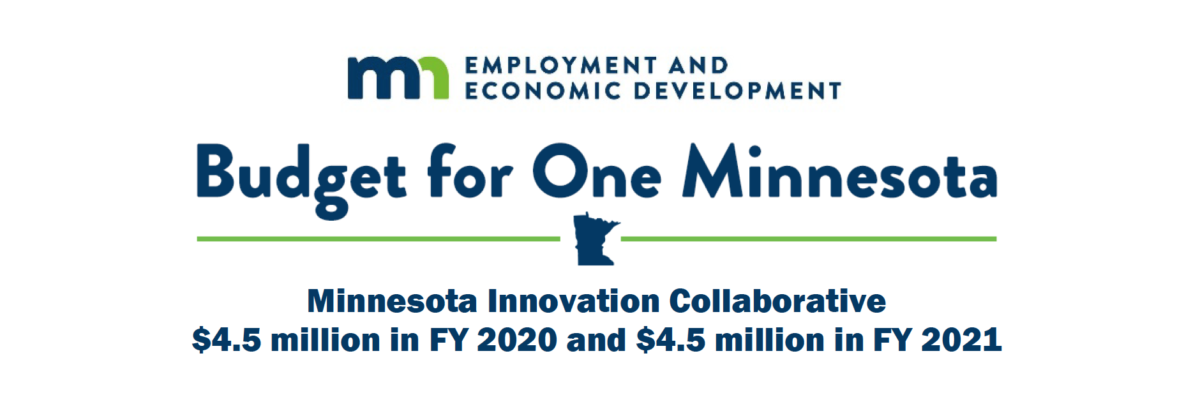
Minnesota Innovation Collaborative

March: Minnebar, Hockey + Hustlers, and Innovation Workshops

Great North Labs at CES

Dec.-Jan.: Top Posts from 2018, pepr, Glowe, and Misty Robotics

Carried Interest: Top Posts from 2018
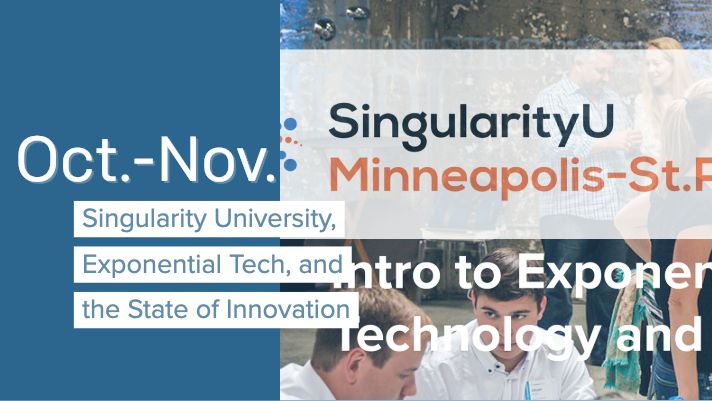
Oct.-Nov.: Singularity University, Exponential Tech, and the State of Innovation

Digital Transformation Summit, July 25th in Minneapolis

June: Silicon Lakes, FactoryFix, and the Digital Transformation Summit

Putting the “Silicon” in Silicon Lakes
Digital Manufacturing and Logistics
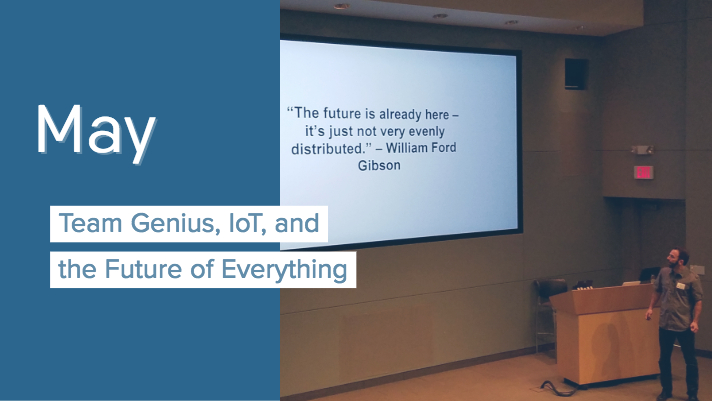
May: Team Genius, IoT, and the Future of Everything
IoT 3.0

Healthcare Innovation
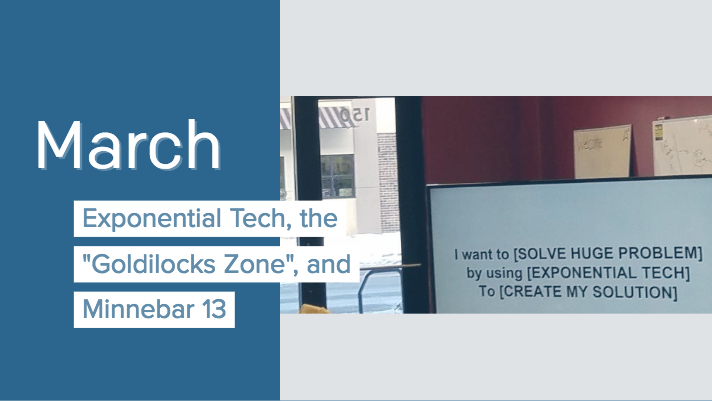
March: Exponential Tech, the “Goldilocks Zone”, and Minnebar 13

February: Team Expansion, Dispatch, and Startup School Events

Great North Labs Newsletter – December 2017

A Letter To My Younger Self

Great North Labs Newsletter
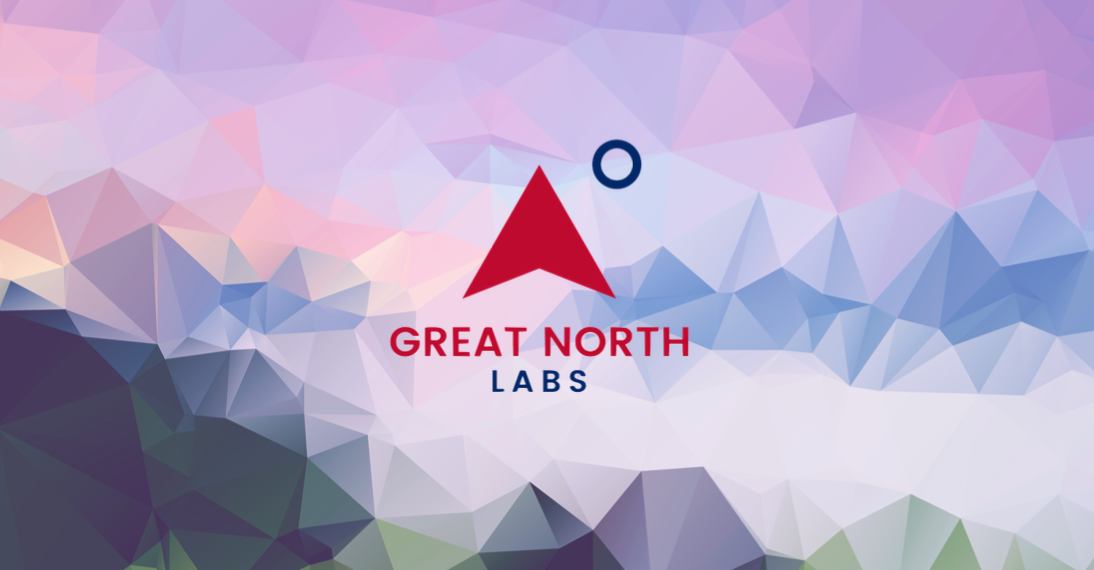
Great North Labs Featured on Tech.mn

Great North Labs Featured in St Cloud Times
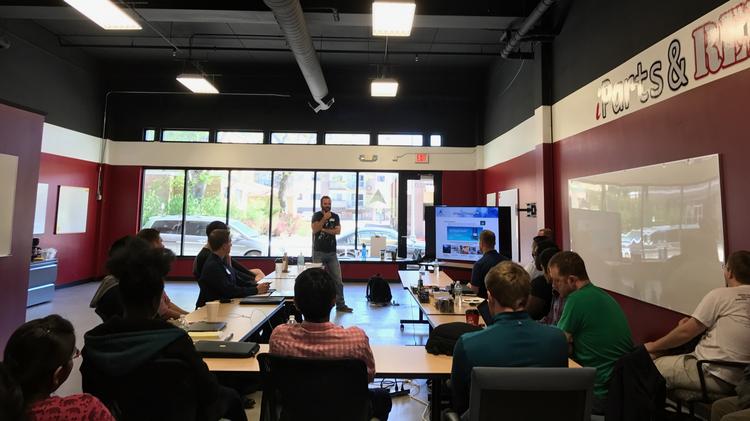
Great North Labs – Featured on BizJournals.com






